We Analyzed 11.8 Million Google Search ResultsHere’s What We Learned About SEO

Written by Brian Dean
We recently analyzed 11.8 million Google search results to answer the question:
Which factors correlate with first-page search engine rankings?
We looked at content. We looked at backlinks. We even looked at page speed.
With the help of our data partner Ahrefs, we uncovered some interesting findings.
And today I’m going to share what we found with you.
Here is a Summary of Our Key Findings:
1. Our data shows that a site’s overall link authority (as measured by Ahrefs Domain Rating) strongly correlates with higher rankings.
2. Pages with lots of backlinks rank above pages that don’t have as many backlinks. In fact, the #1 result in Google has an average of 3.8x more backlinks than positions #2-#10.
3. Comprehensive content with a high “Content Grade” (via Clearscope), significantly outperformed content that didn’t cover a topic in-depth.
4. We found no correlation between page loading speed (as measured by Alexa) and first page Google rankings.
5. Getting backlinks from multiple different sites appears to be important for SEO. We found the number of domains linking to a page had a correlation with rankings.
6. The vast majority of title tags in Google exactly or partially match the keyword that they rank for. However, we found essentially zero correlation between using a keyword in your title tag and higher rankings on the first page.
7. Page authority (as measured by Ahrefs URL Rating) weakly correlates with rankings.
8. We discovered that word count was evenly distributed among the top 10 results. The average Google first page result contains 1,447 words.
9. HTML page size does not have any correlation with rankings. In other words, heavy pages have the same chance to rank as light pages.
10. We found a very slight correlation between URL length and rankings. Specifically, short URLs tend to have a slight ranking advantage over longer URLs.
11. Our data shows that use of Schema markup does not correlate with higher rankings.
12. Websites with above-average “time on site” tend to rank higher in Google. Specifically, increasing time on site by 3 seconds correlates to ranking a single position higher in the search results.
We have detailed data and information of our findings below.
Authoritative Domains Tend to Rank Higher in Google’s Search Results
We found that a website’s overall link authority (measured using Ahrefs Domain Rating) correlates to higher first page Google rankings:
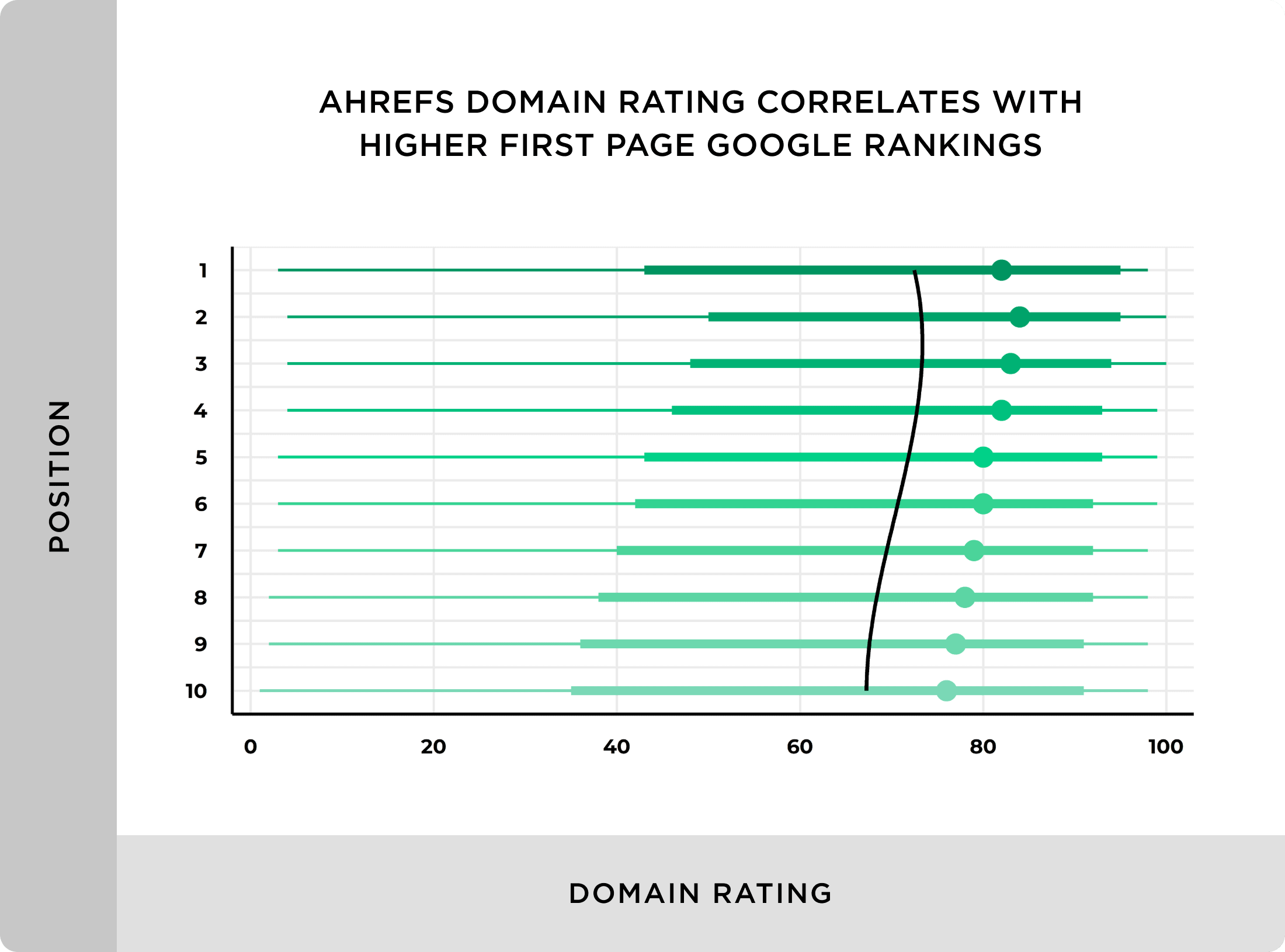
And in general, average Domain Rating increases by SERP position.
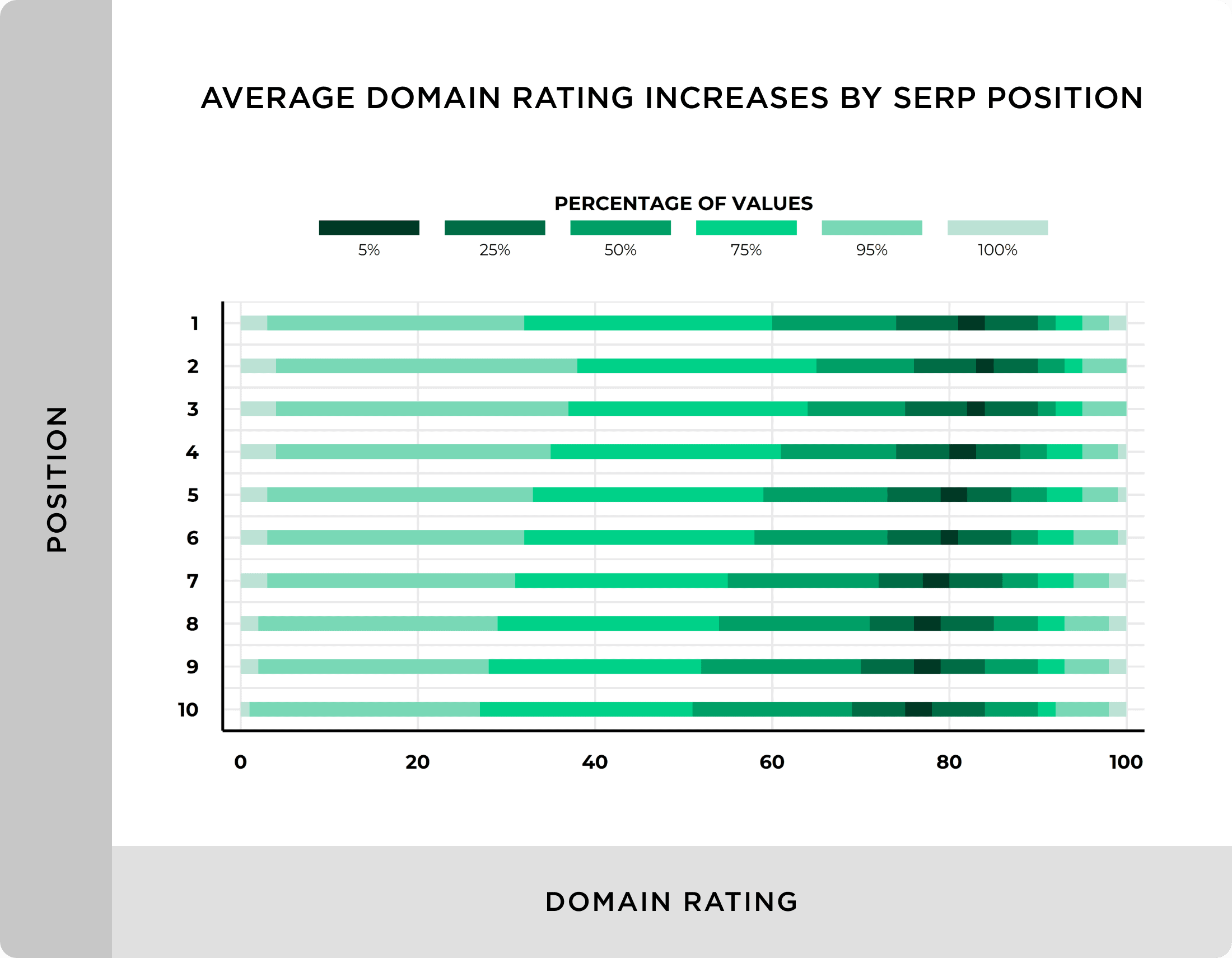
In other words, the higher you go on the first page, the higher your Domain Rating tends to be.
In fact, a website’s overall authority had a stronger correlation to rankings than the authority of the page itself (URL Rating).
Key Takeaway: Higher Domain Ratings correlate with higher rankings on Google’s first page. Therefore, domains have a significant advantage in the SERPs.
Pages With More Backlinks Tend to Rank Higher Than Pages With Fewer Backlinks
One of the most interesting findings from this analysis was that very few pages have any backlinks.
In fact, we found that approximately 95% of all pages have zero backlinks.
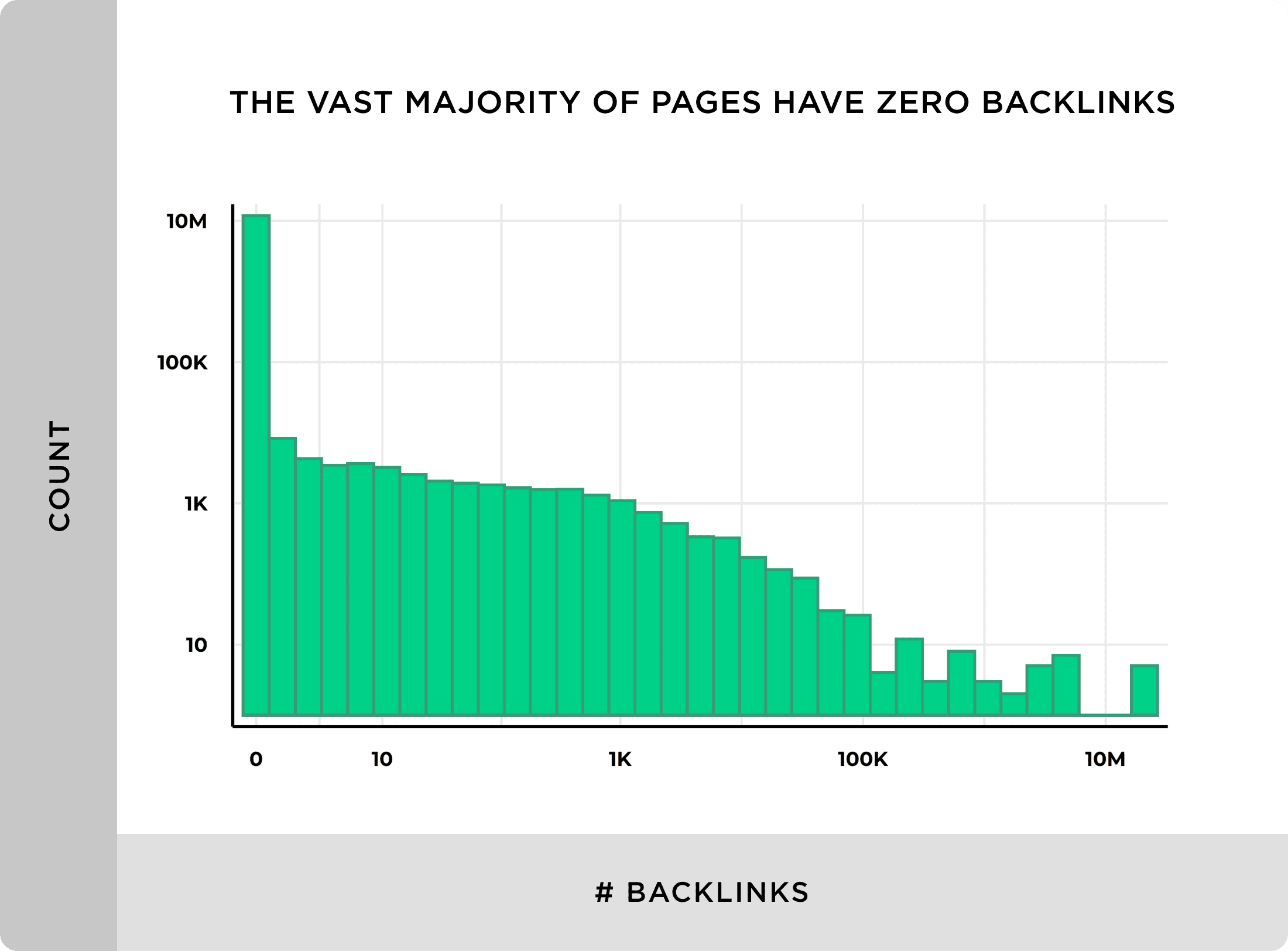
This finding is in-line with this Backlinko-BuzzSumo analysis of 912 million blog posts, which found that 94% of all content has zero backlinks.
In fact, so few pages had any backlinks that “zero backlink” pages were beginning to skew the data. So for this ranking factor we decided to run this particular analysis excluding pages with zero backlinks.
Perhaps not surprisingly, we discovered that pages with the highest number of total backlinks tended to rank best in Google.
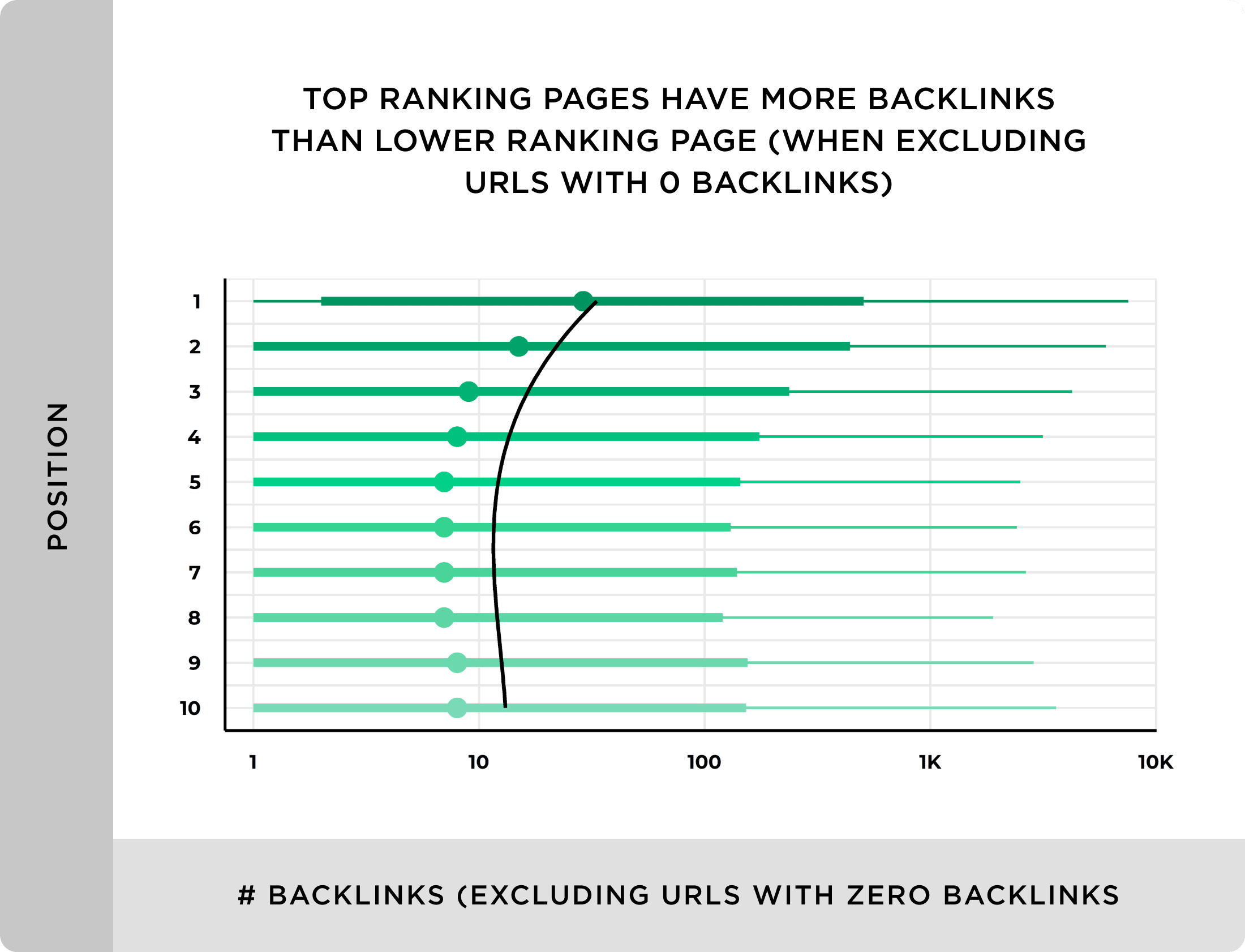
We also found that the #1 results has an average of 3.8x more backlinks than the results rankings #2-#10.
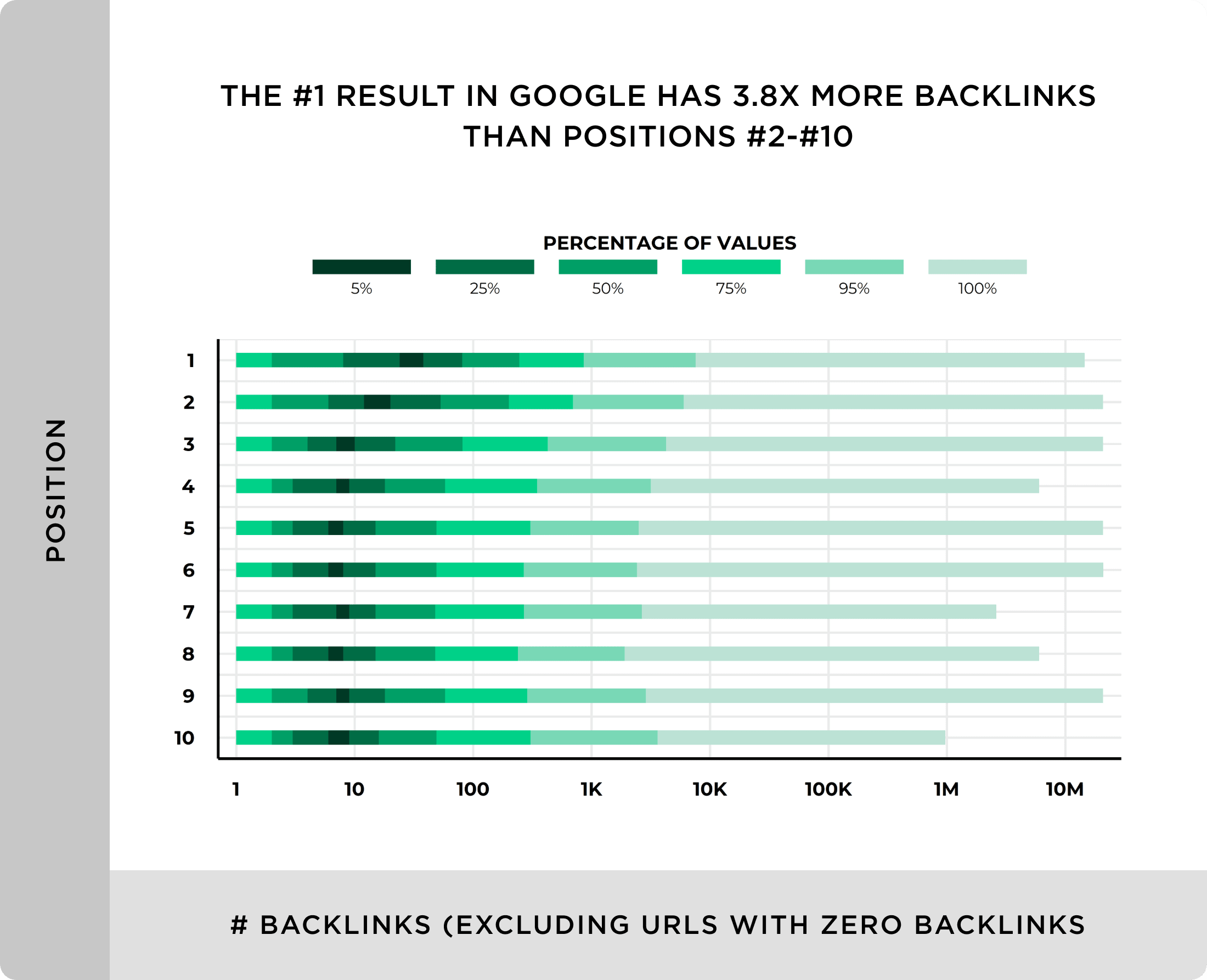
Key Takeaway: Even though Google continues to add diversity to its algorithm, it appears that backlinks remain a critical ranking signal.
Comprehensive Content Strongly Correlates With Higher Rankings
Many SEO experts claim that comprehensive content performs best in Google.
Put another way: content that covers an entire topic on a single page may have a direct or indirect relationship with rankings.
We decided to put this assumption to the test. Specifically, we ran a subset of our full 11.8M URL dataset through the content analysis tool Clearscope.io.
Our analysis found a clear correlation between “Content Grade” and Google rankings in both desktop and mobile results.
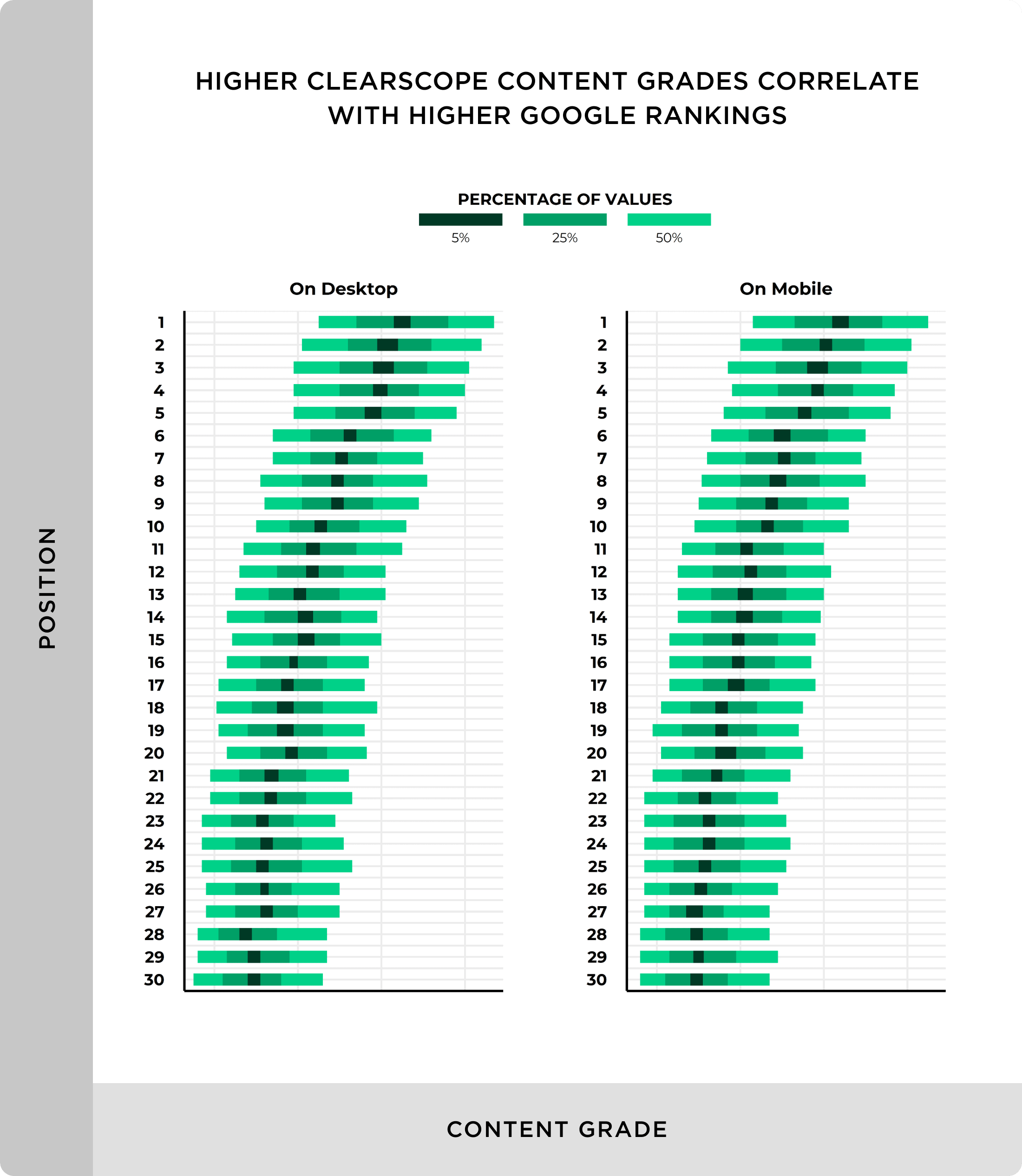
In fact, when looking at the top 30 results, increasing Content Grade by 1 approximates to increasing rankings by one position. Which suggests a significant relationship.
For example, take this page from PaleoLeap.com:
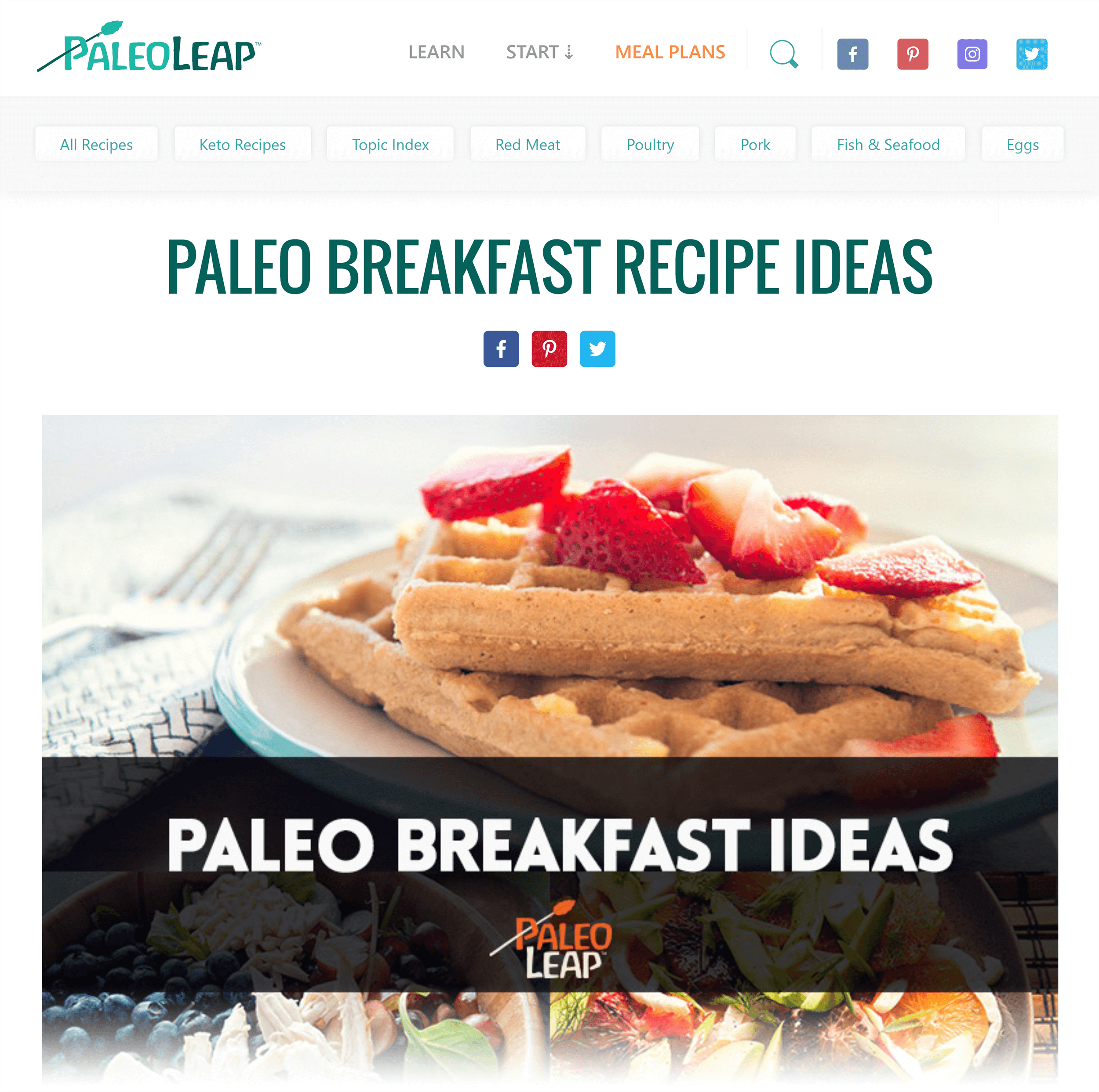
This page has many of the traditional metrics that typically correlate with high Google rankings. For example, the page uses the exact keyword in the page’s title tag and the H1 tag. Also, the domain is very authoritative (Ahrefs Domain Rating of 73).
However, this page ranks only #9 for the keyword: “Paleo diet breakfasts”.
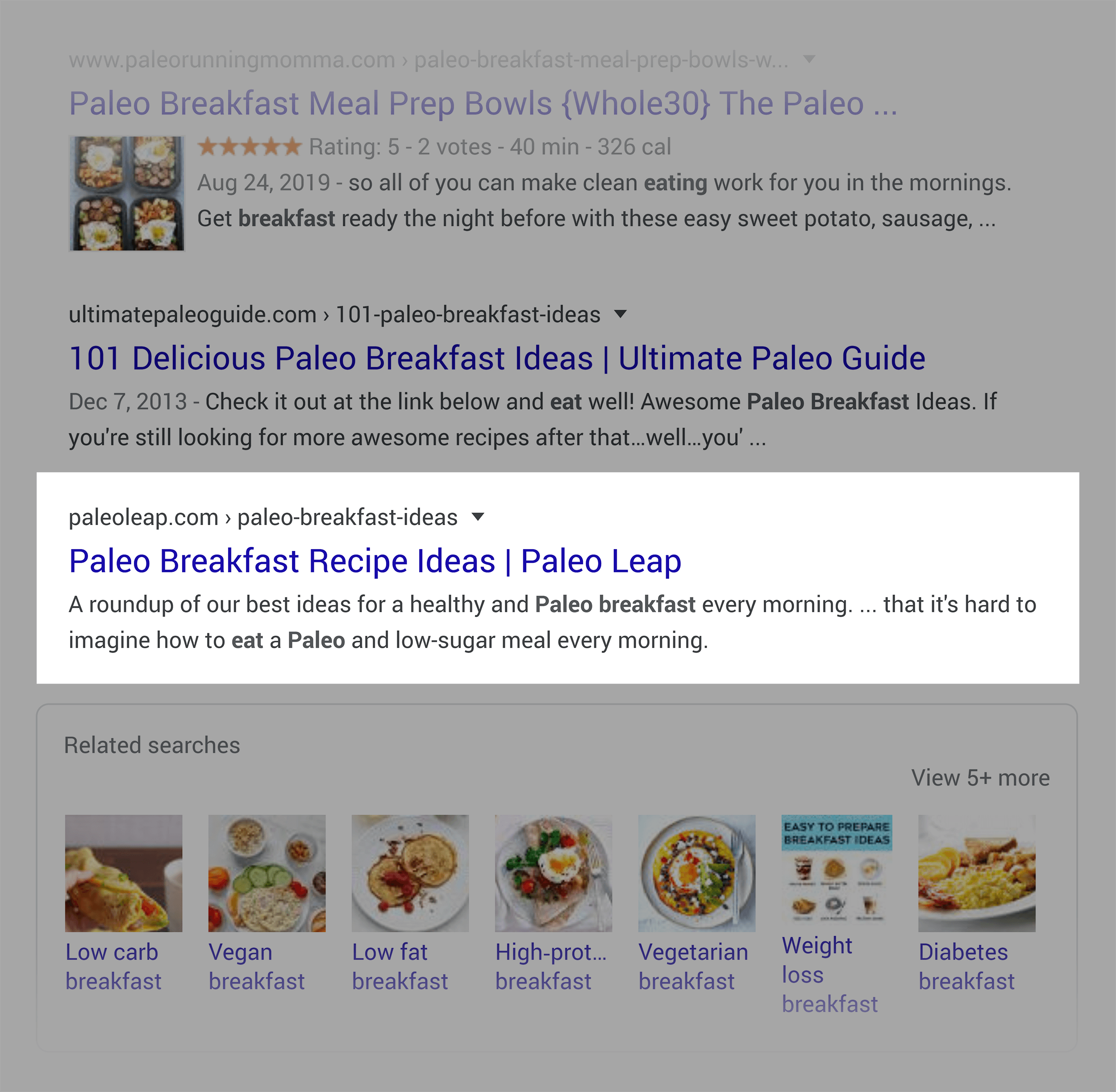
Sure enough, this page also has a relatively low Content Grade.
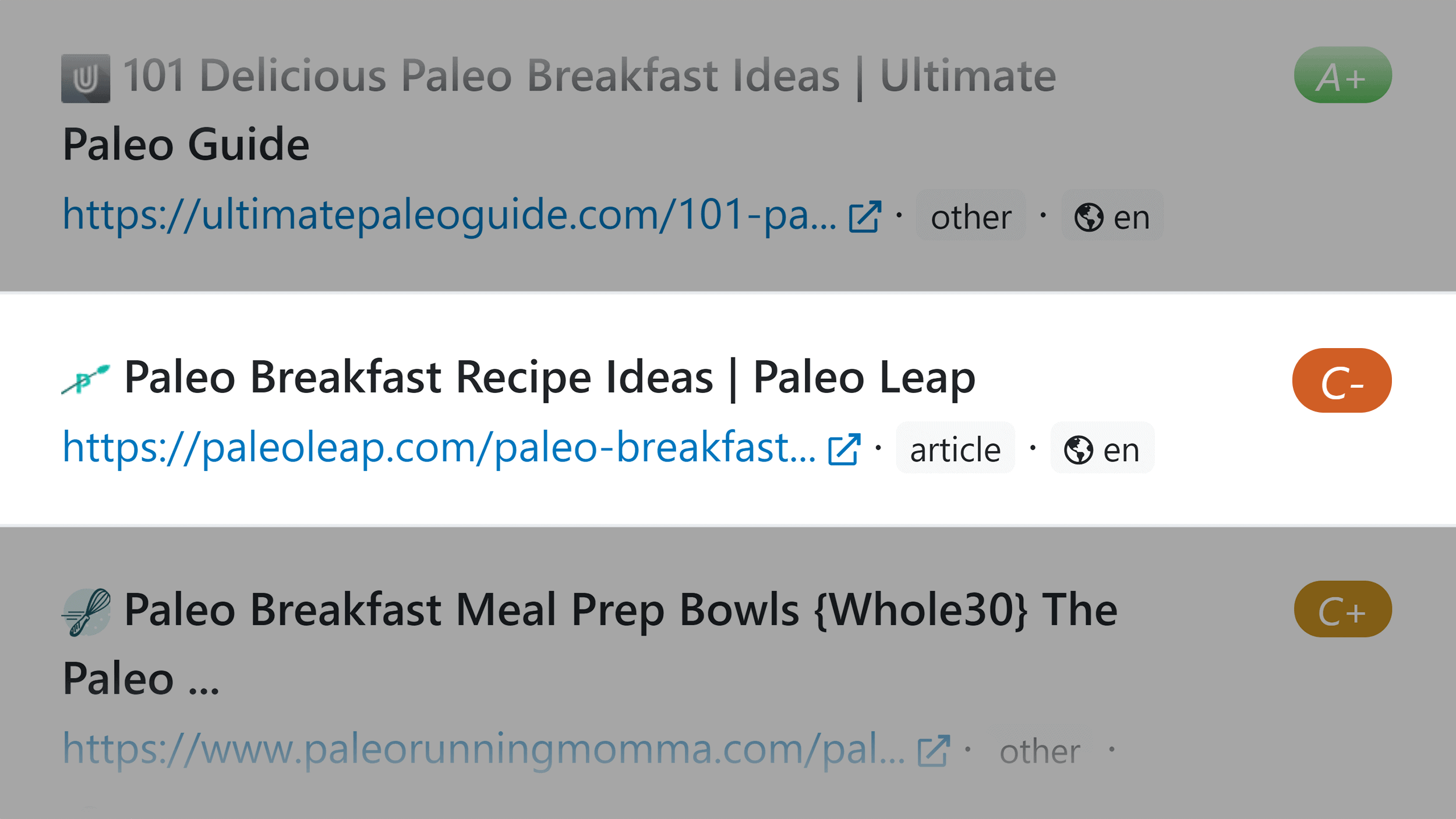
Whether comprehensive content directly impacts rankings is unclear.
It could be that Google has an inherent preference for content that they deem comprehensive. Or it may be that users are more satisfied with search results that give them a full answer to their query.
As this is a correlation study, it’s impossible to determine the underlying reason behind this relationship from our data alone.
Key Takeaway: Writing comprehensive, in-depth content can help pages rank higher in Google.
Page Loading Speed Does Not Have a Correlation With Rankings
Google has used site speed as an official ranking signal since 2010.
And Google’s more recent speed-related update, the 2018 “Speed Update”, was designed to provide mobile searchers with faster-loading pages.
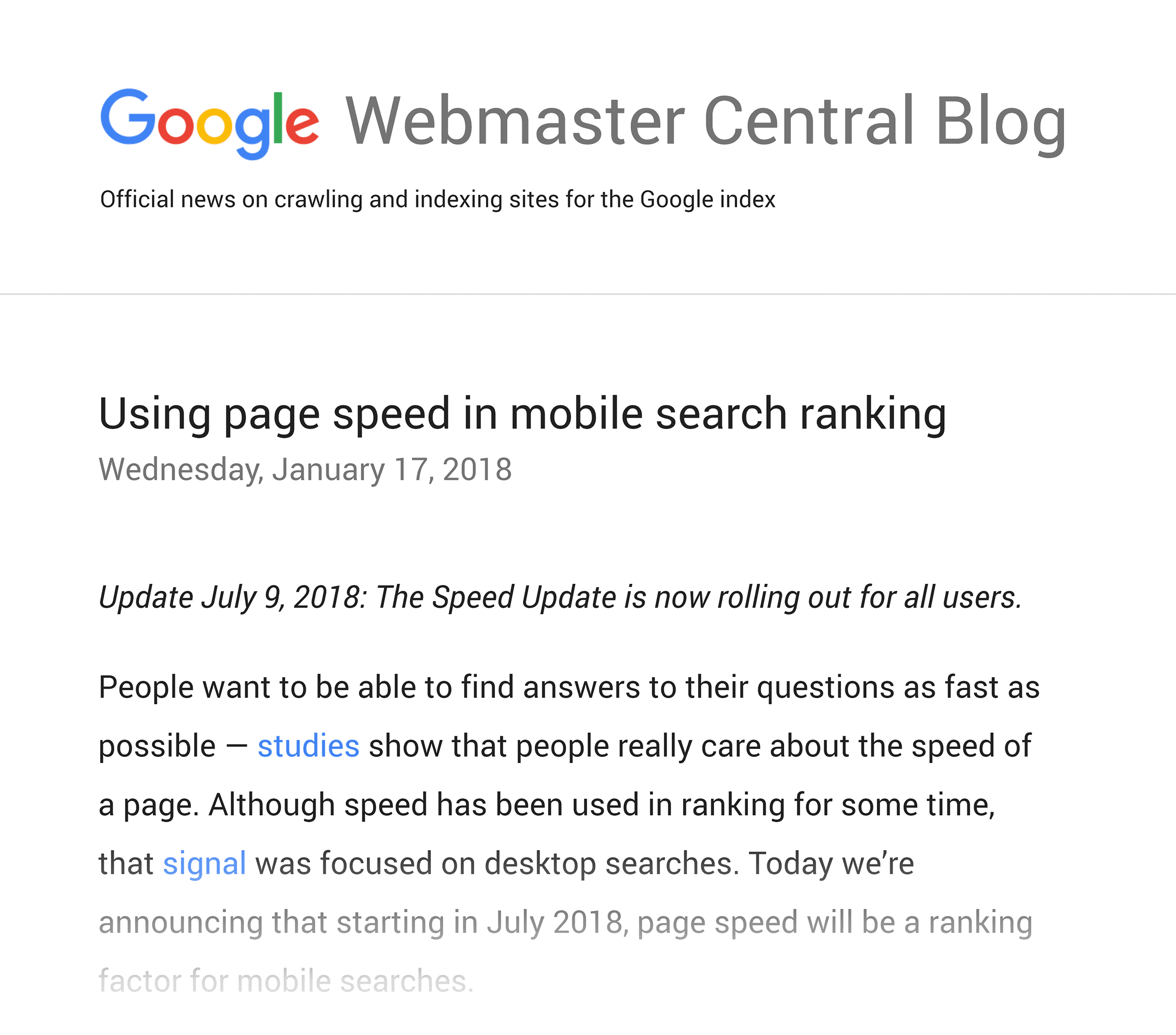
However, we wanted to know:
Does site speed correlate with actual Google rankings?
We used Alexa’s domain speed to analyze the median load time of 1 million domains from our data set. In other words, we didn’t directly measure the loading speed of the individual pages in our data set. We simply looked at the average loading speed across the entire domain.
Overall, we found zero correlation between site speed and Google rankings:
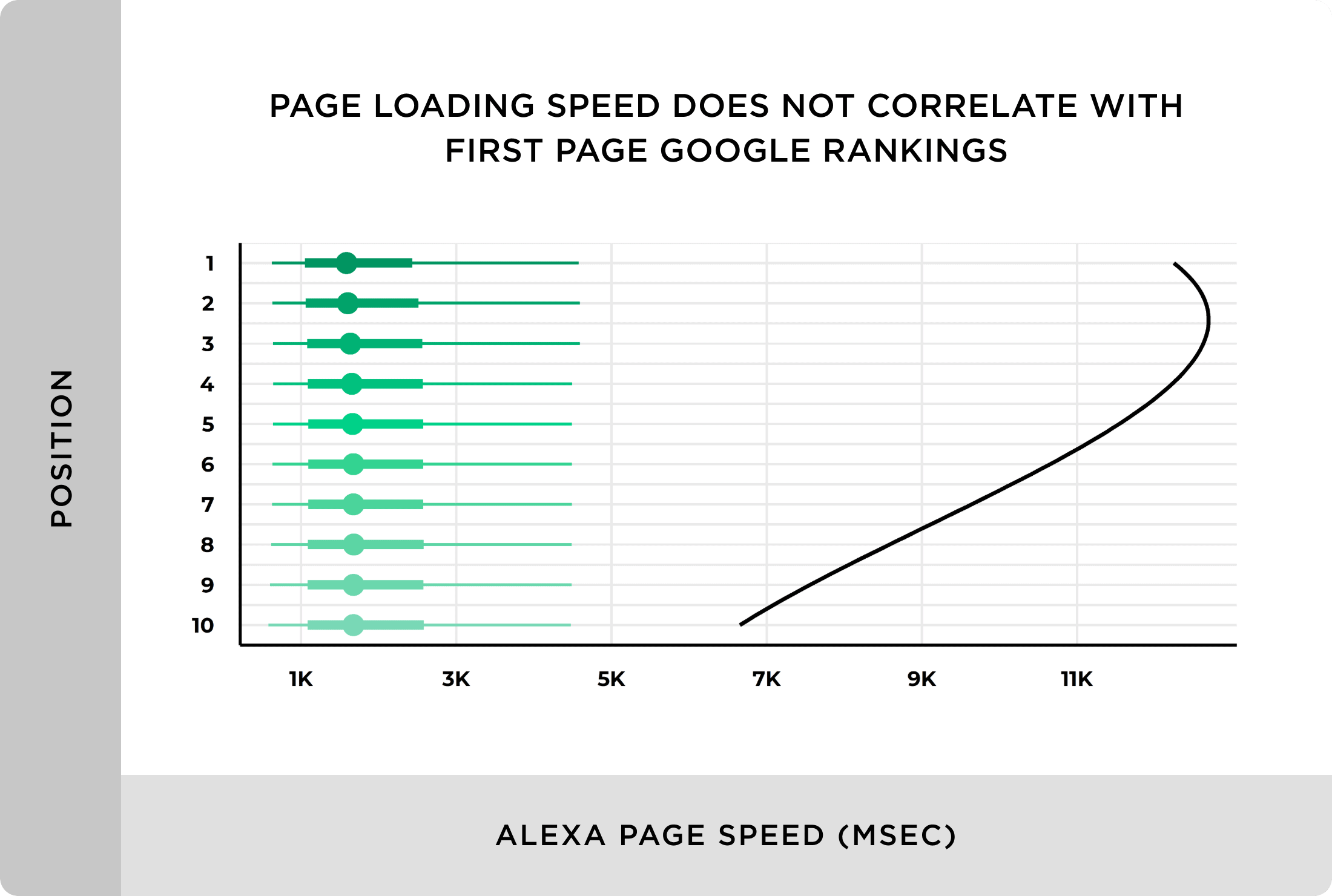
At first glance, this finding may come as a surprise. After all, PageSpeed is a confirmed Google ranking signal. Knowing that, you would expect that faster pages would generally outrank slower ones.
However, the data paints a different picture. And when you dig a little bit deeper, this lack of relationship makes sense.
When Google announced their Speed Update, they made sure to point out that this update largely affected extremely slow pages.
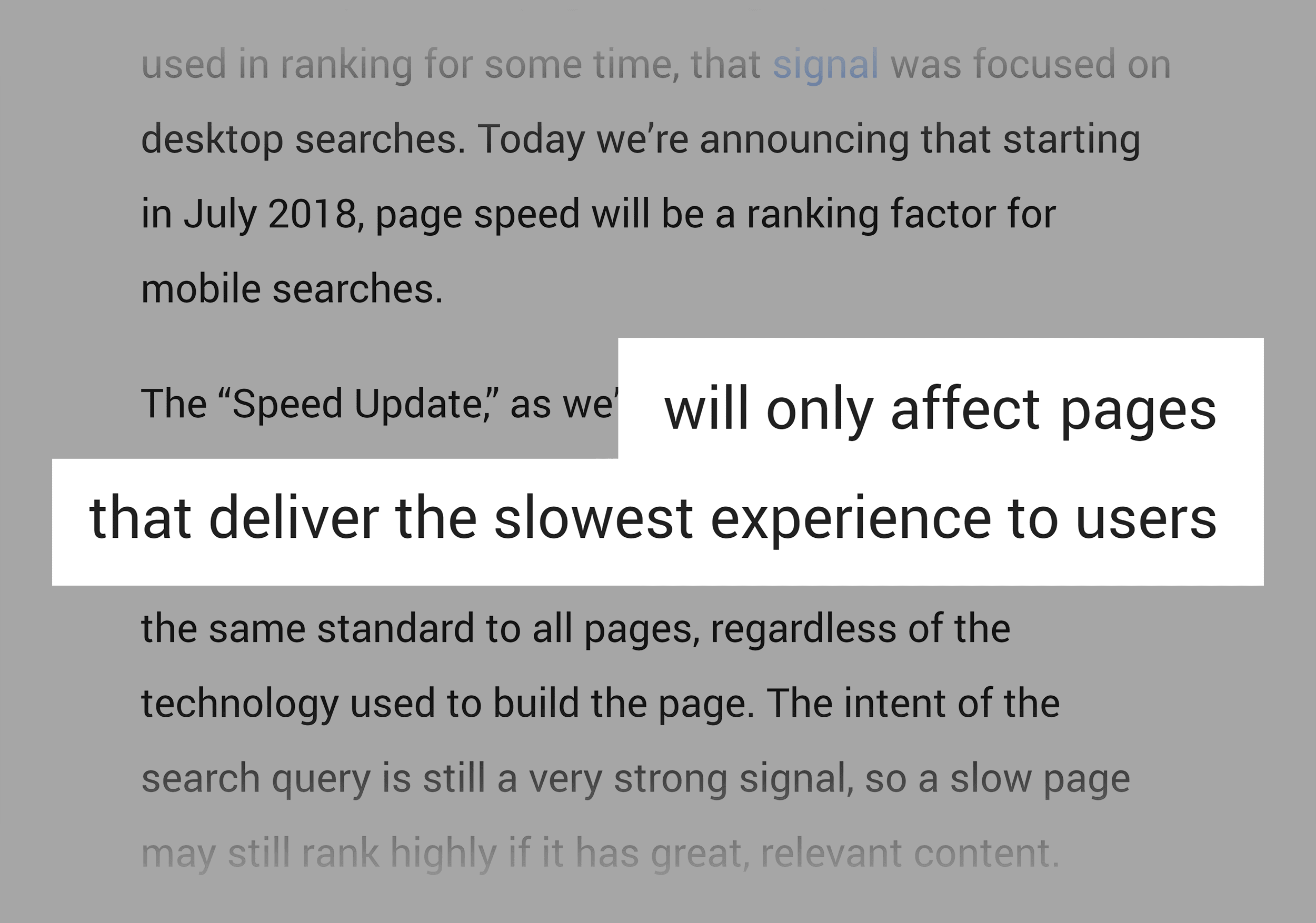
And that the update as a whole may not be that impactful.
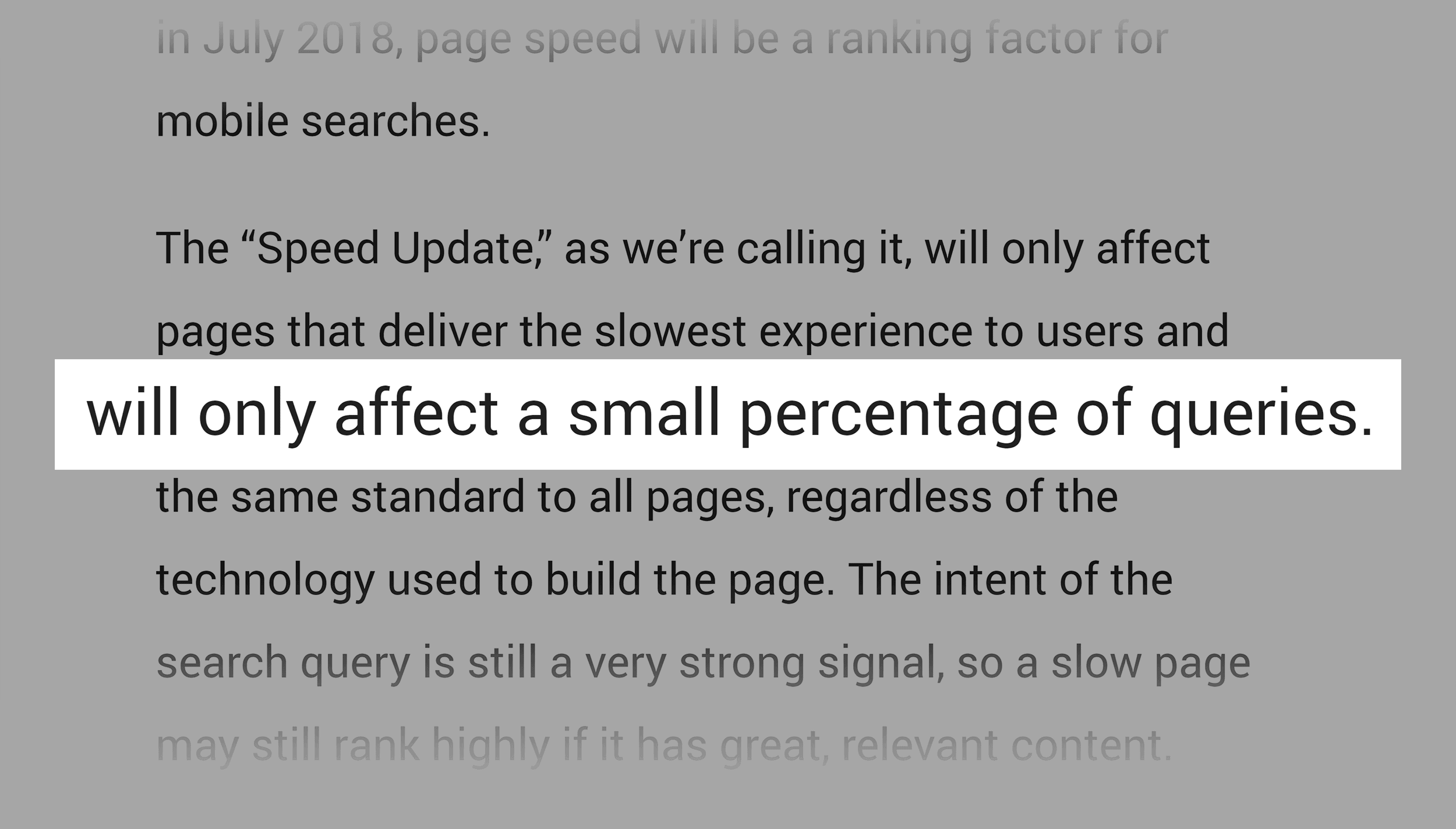
In short, Google’s algorithm appears to downrank extremely slow pages vs. benefit fast ones.
And our analysis found that the average page loading speed for a first page result is 1.65 seconds.
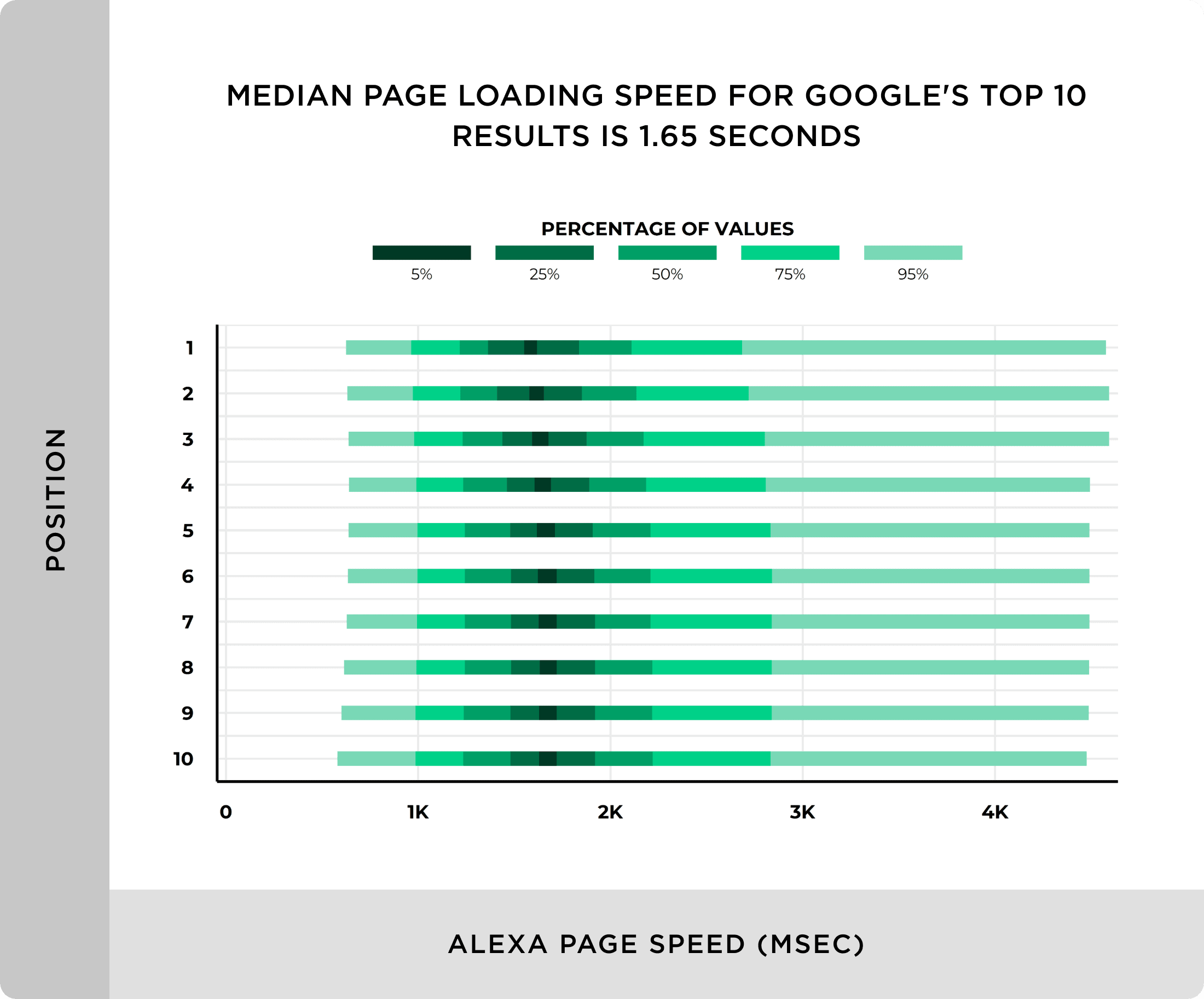
Our previous site speed analysis found that the average page took 10 seconds to load on desktop and 27 seconds to load on mobile.
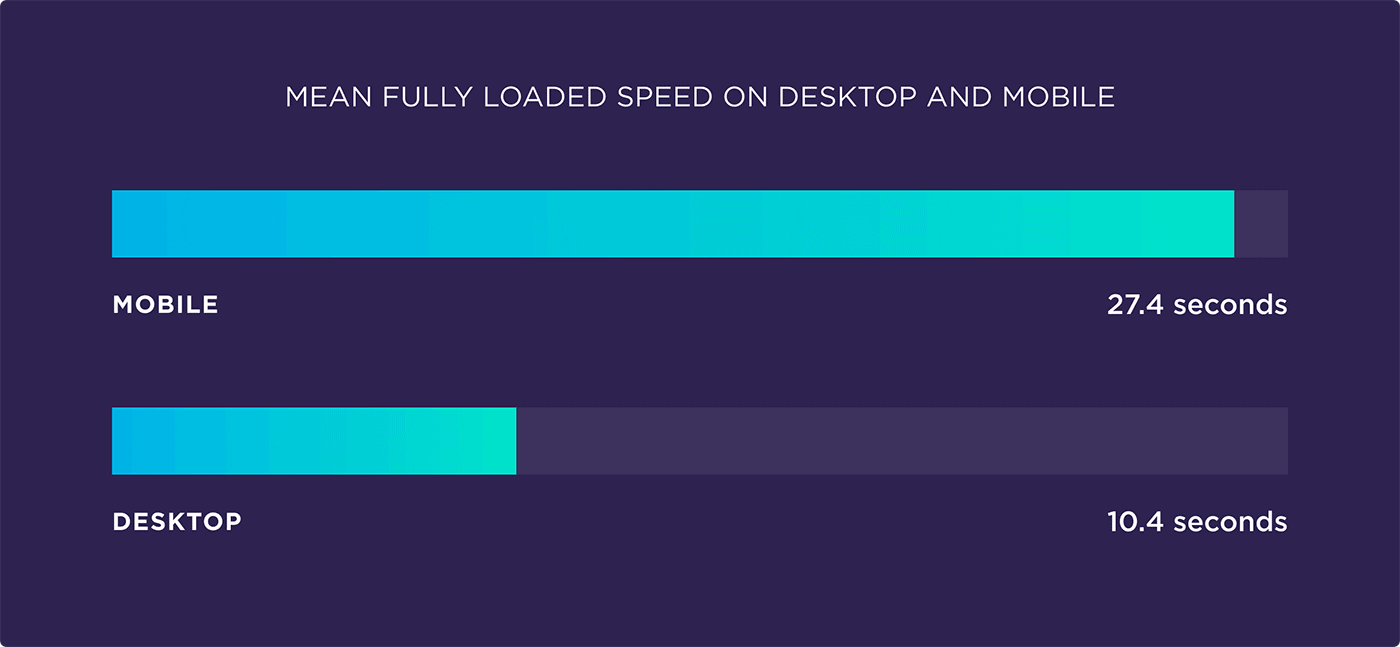
Compared to that benchmark, a 1.65 second average loading speed is extremely fast.
And because the top 10 results tend to load relatively quickly, they don’t appear to be impacted by Google’s various speed updates.
Key Takeaway: The average Google first page result loads in 1.65 seconds. However, we found no correlation between site speed and Google rankings.
The Number of Referring Domains Appears to Have an Influence on Rankings
Many SEO experts agree that getting multiple backlinks from the same domain has diminishing returns.
In other words, it’s better to get 10 links from 10 different sites than 10 links from the same domain.
According to our analysis, this appears to be the case. We found that domain diversity has a substantial impact on rankings.
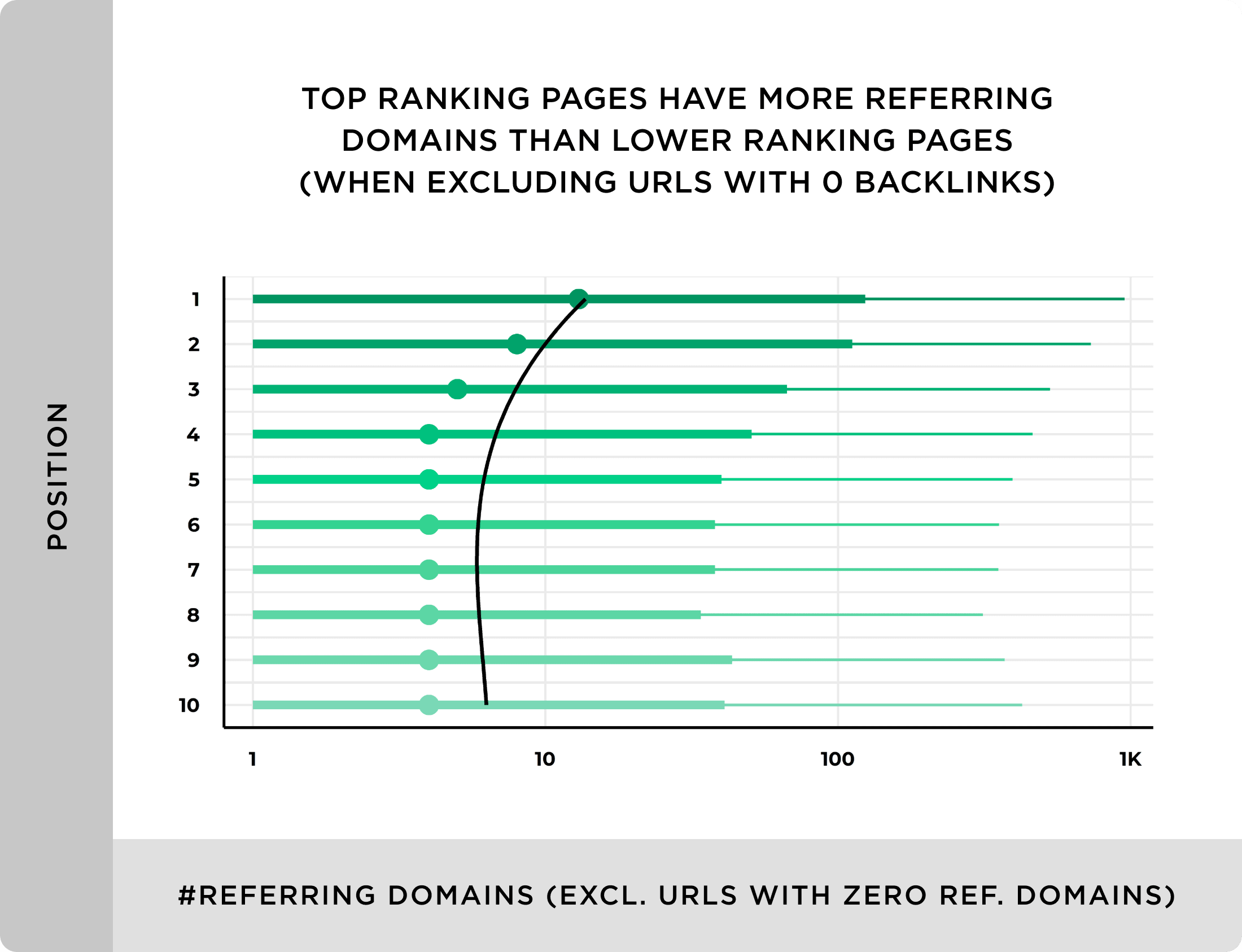
Just like with backlinks, the top results tend to have more linking domains than those towards the bottom of the first page.
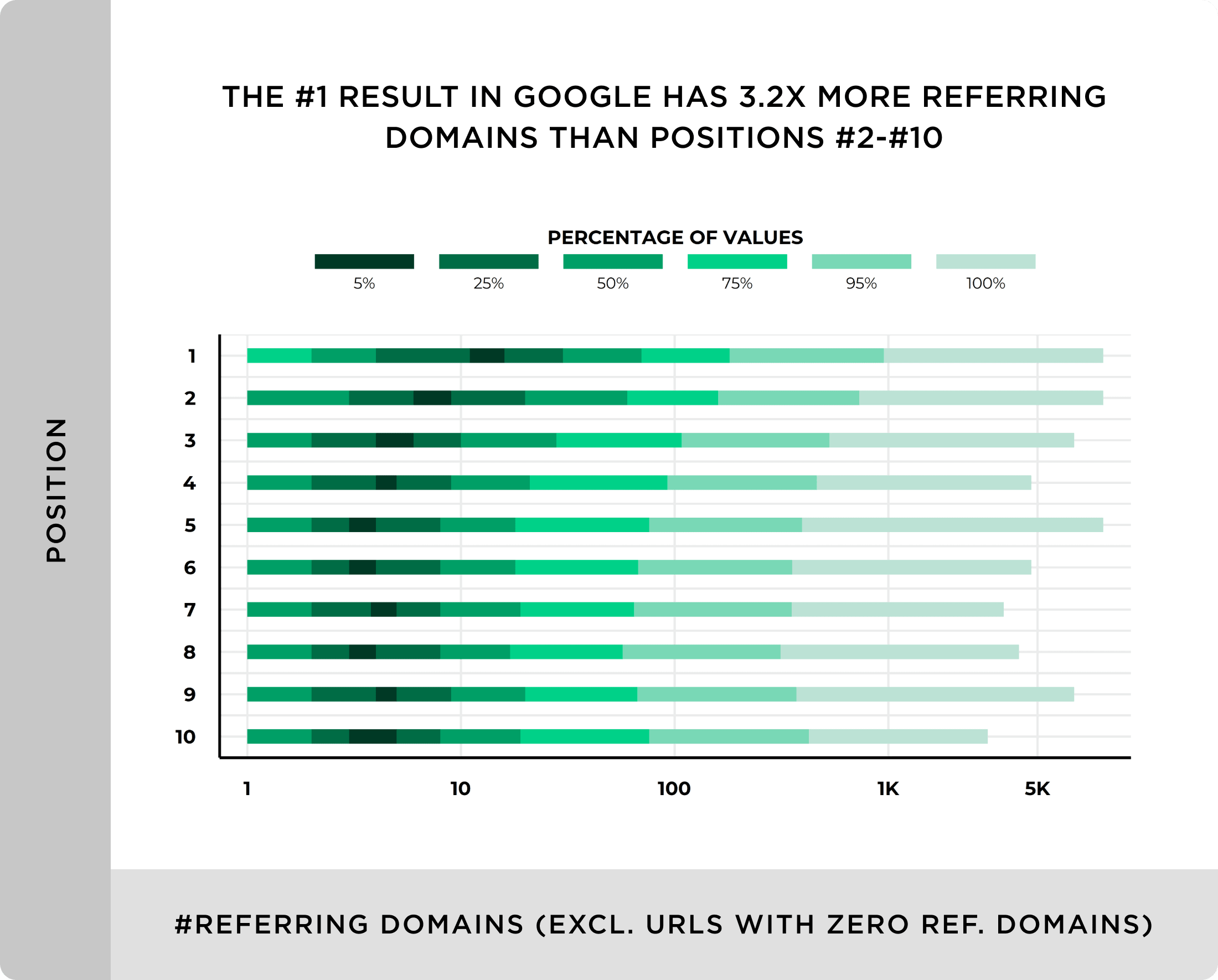
Key Takeaway: Getting links from a diverse group of domains appears to be important for SEO.
Most Title Tags on Google’s First Page Contain Keywords That Are an Exact or Partial Match of That Search
Since the early days of search engines, the title tag has been considered the most important on-page SEO element.
Because your title tag gives people (and search engines) an overview of your page’s overall topic, the words that appear in your title tag should presumably have a significant impact on rankings.
In fact, Google’s own Search Engine Optimization Starter Guide recommends writing title tags that describe what that page is all about.
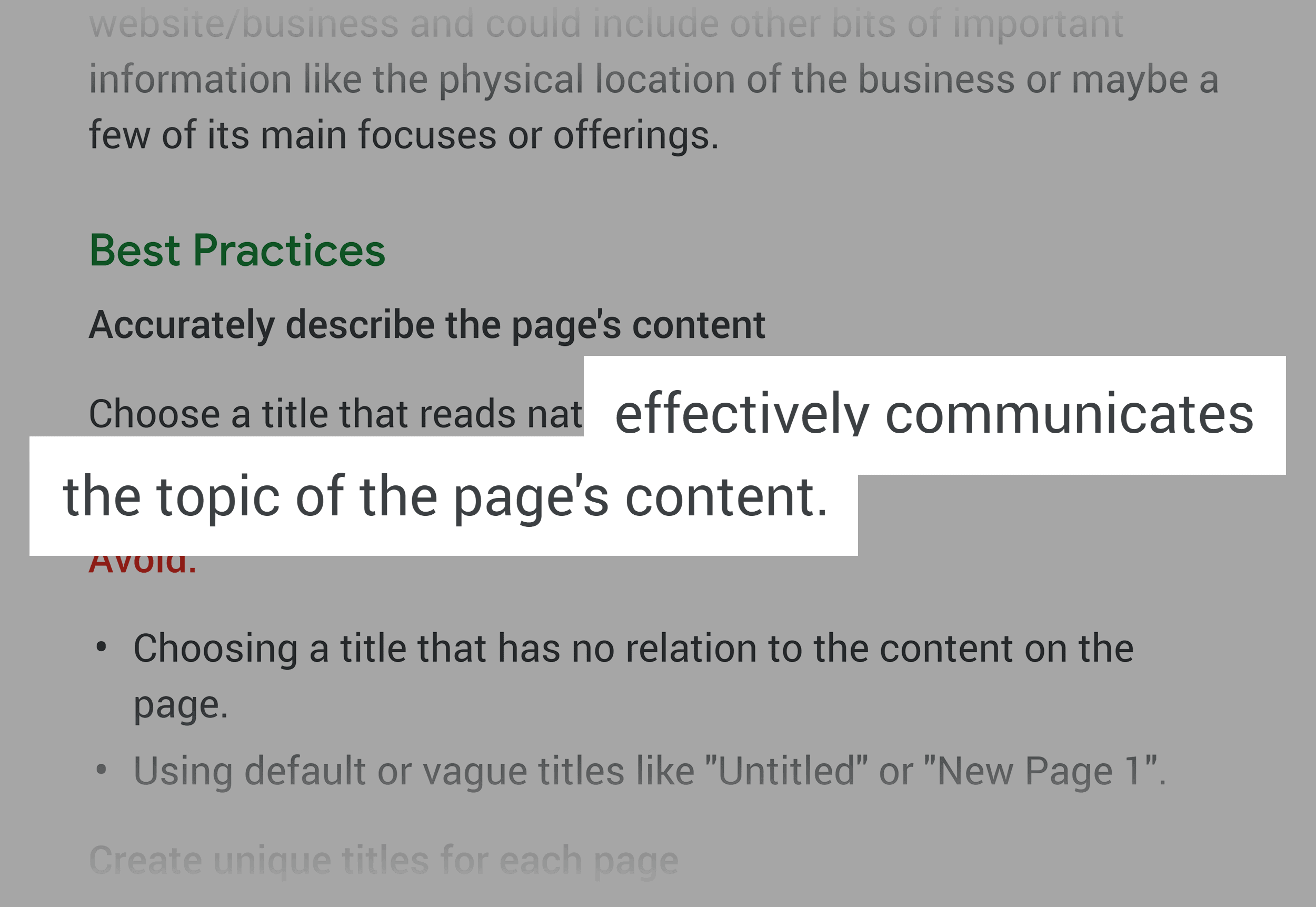
Sure enough, we found that most title tags on the first page of Google contain all or part of the keyword that they rank for.
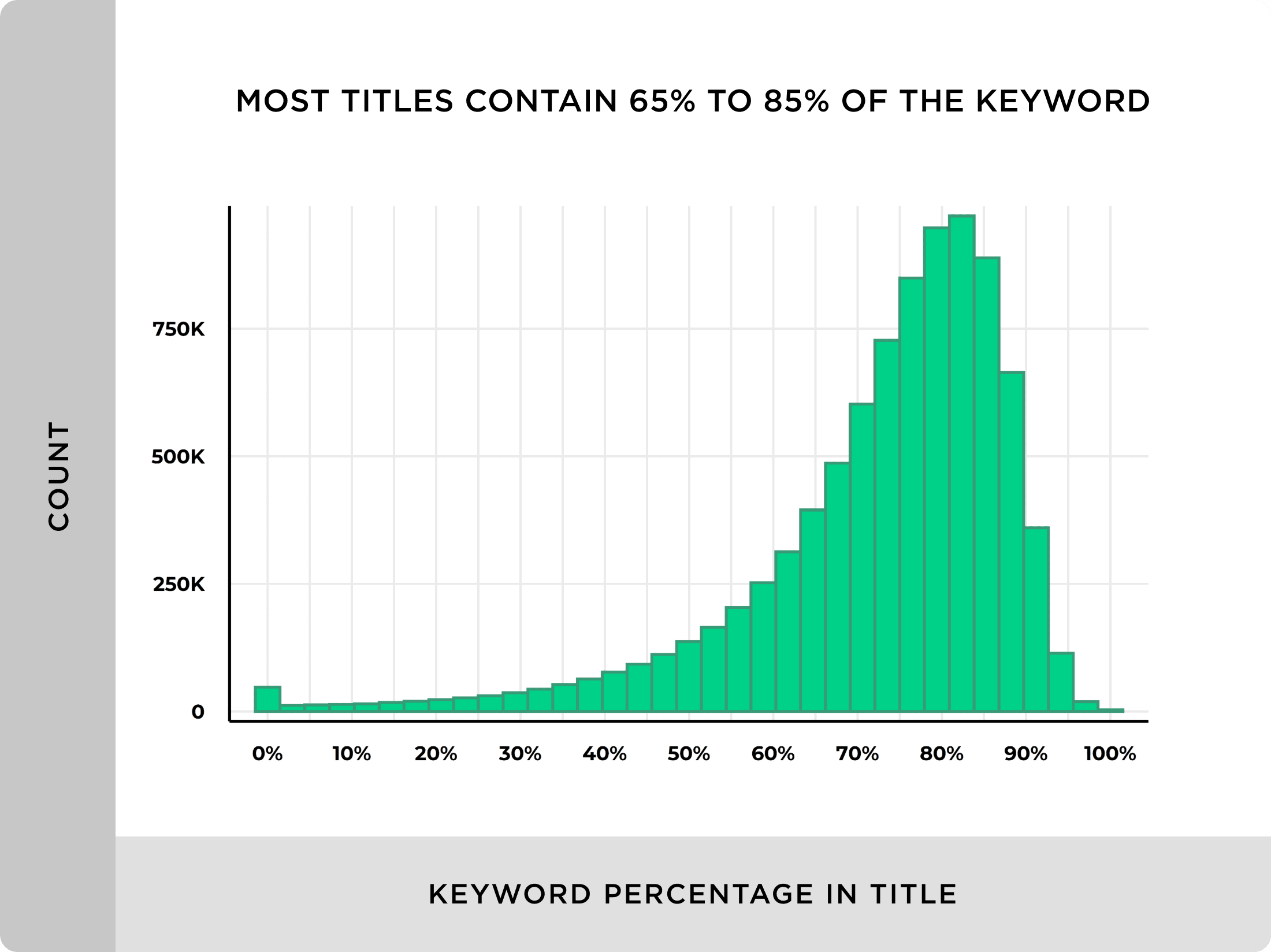
While most pages that rank for a keyword have that keyword in their title tag, a keyword-optimized title tag doesn’t appear to correlate with higher rankings on the first page.
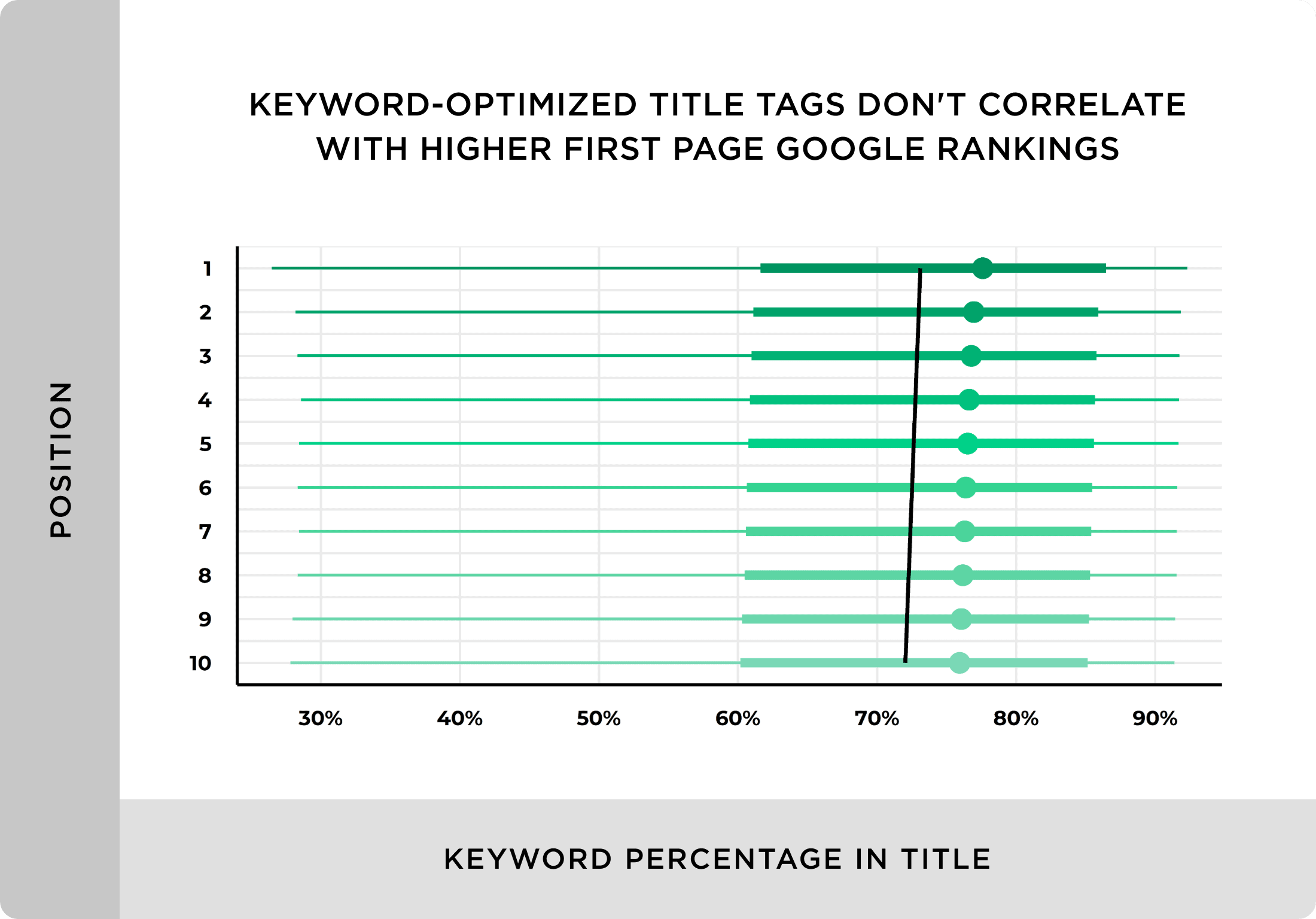
In fact, our linear model predicts a very small relationship between title tag matching and rankings (only a 1% difference between the #1 and #10 result).
It appears that a keyword-rich title tag may be a “ticket to entry” that can help you get to the first page.
However, once you’re on the first page, using the exact keyword in your title doesn’t appear to help you climb the rankings. That’s where other factors (like backlinks, user experience signals and Domain Authority) appear to play a large role.
Key Takeaway: Pages in Google’s top 10 results contain 65% to 85% of the keywords that they’re ranking for in their title tag. However, we found very little (if any) correlation between keyword-optimized title tags and higher rankings on the first page.
Keyword-Optimized H1 Tags Don’t Correlate With Higher First Page Rankings
Similar to our title tag findings, most pages in Google’s results have a matching keyword in the page’s H1 tag.
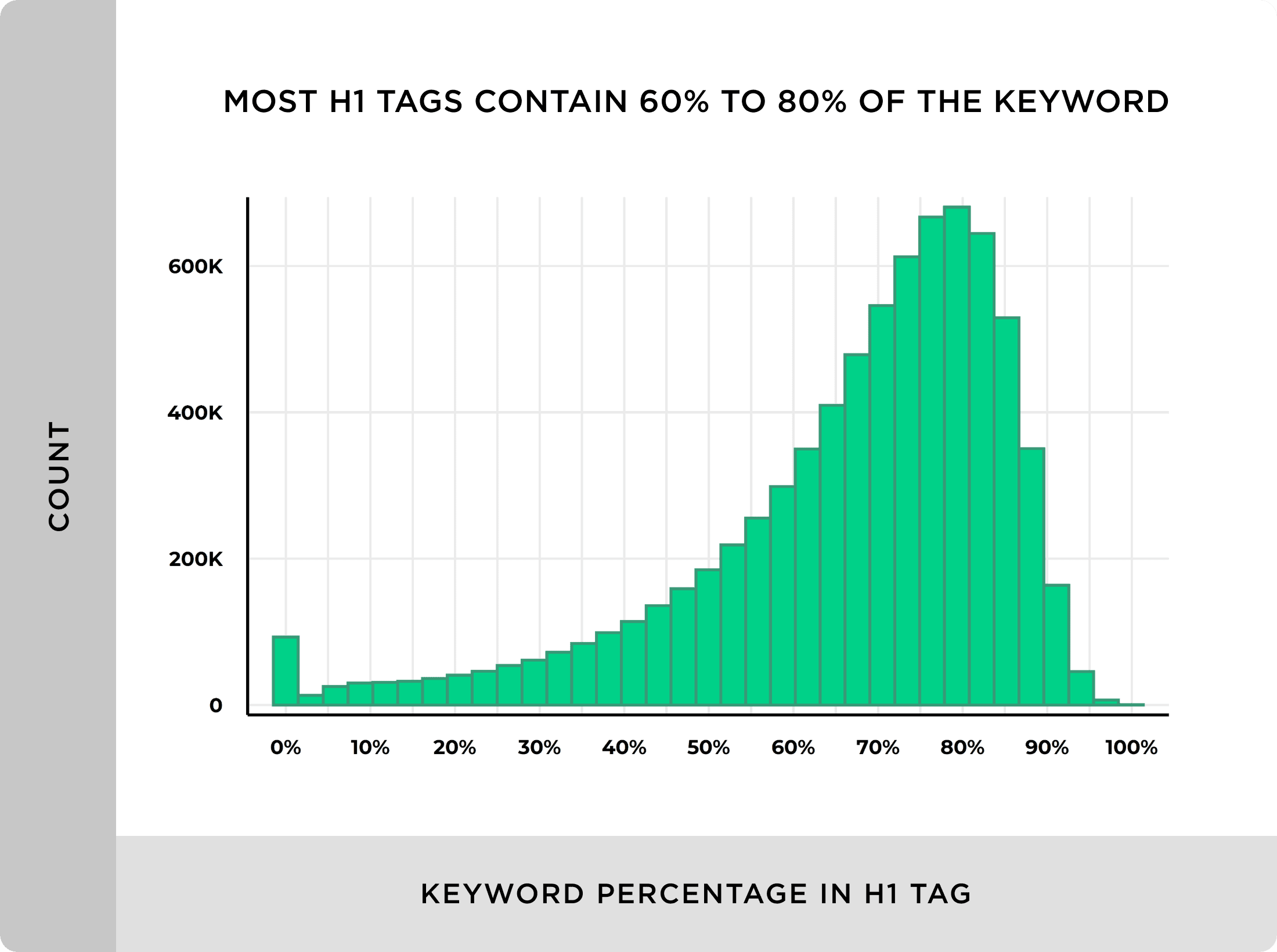
Also, keyword-matched H1s have essentially no relationship with higher Google rankings.
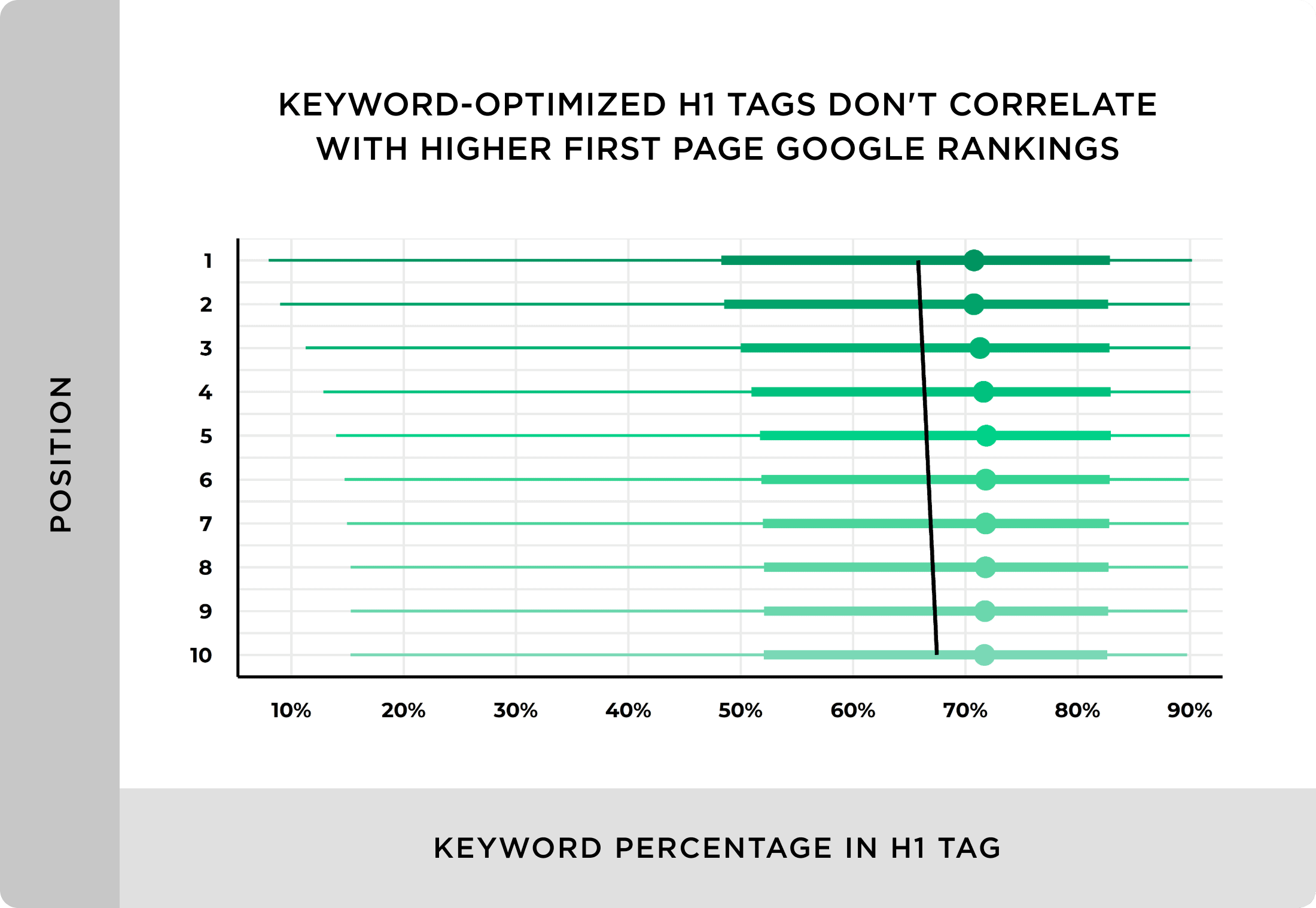
Key Takeaway: Like with title tag optimization, H1s may be a “ticket to entry” factor that can help you crack Google’s first page. However, keyword-rich H1s may not be strong enough of a ranking signal to help a page move up the first page results.
Webpage Authority (URL Rating) Has a Slight Correlation With Higher Rankings
In addition to Domain Rating, we wanted to answer the question:
Does a page’s overall link authority influence rankings?
In other words, is it more important to get backlinks to a specific page? Or is a site’s overall domain authority more important?
To find out, we looked at the correlation of page authority (measured by Ahrefs URL Rating) and rankings.
While we did find that URL Rating and rankings were tied, the relationship was small.
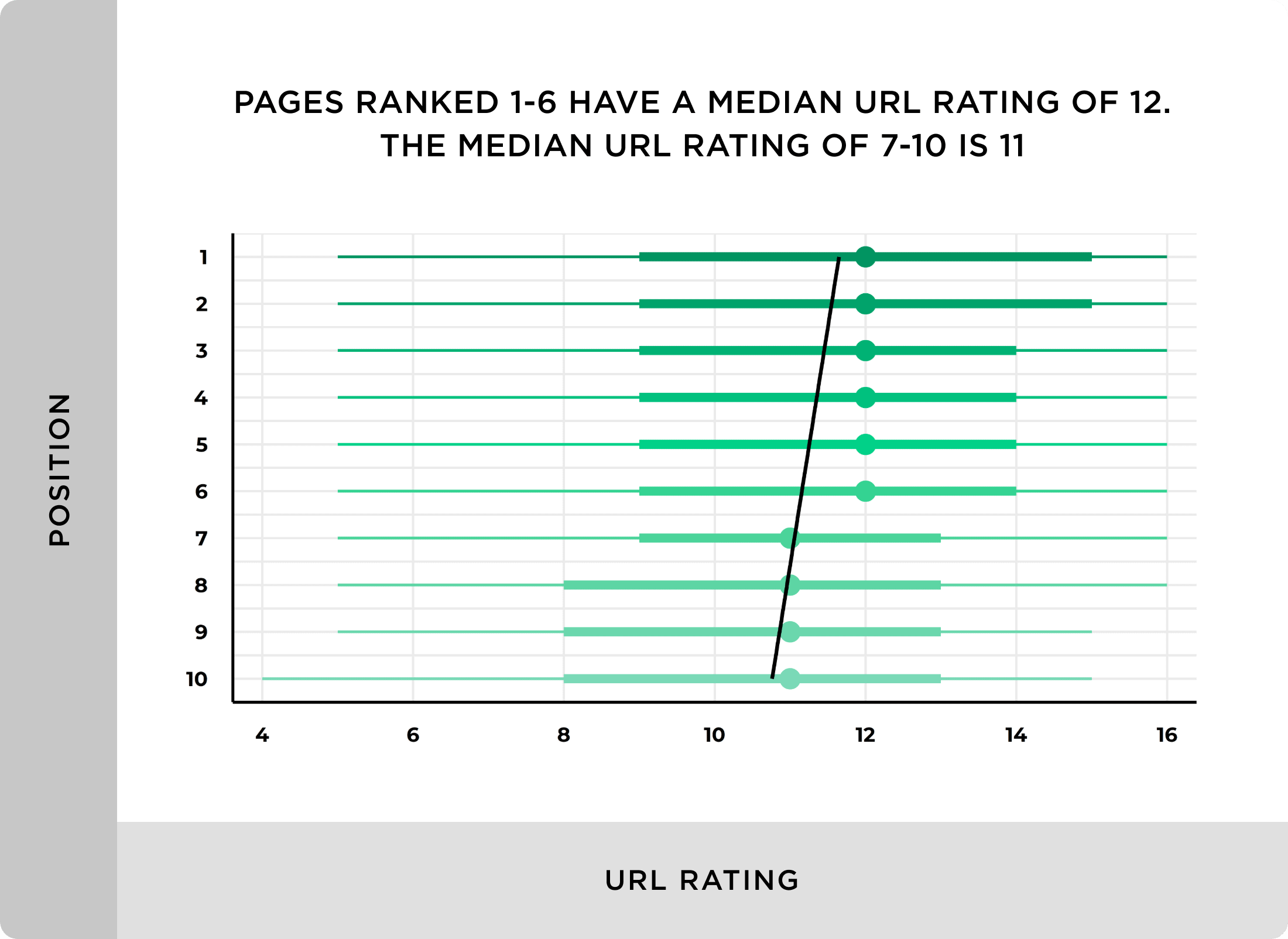
Specifically, pages that rank in the top 6 have a slightly higher URL Rating (12) compared to pages that rank 7-10 (11).
However, this correlation wasn’t as strong as the impact of a site’s Domain Rating on rankings.
As a whole, most URL Ratings are similar among the top 10.
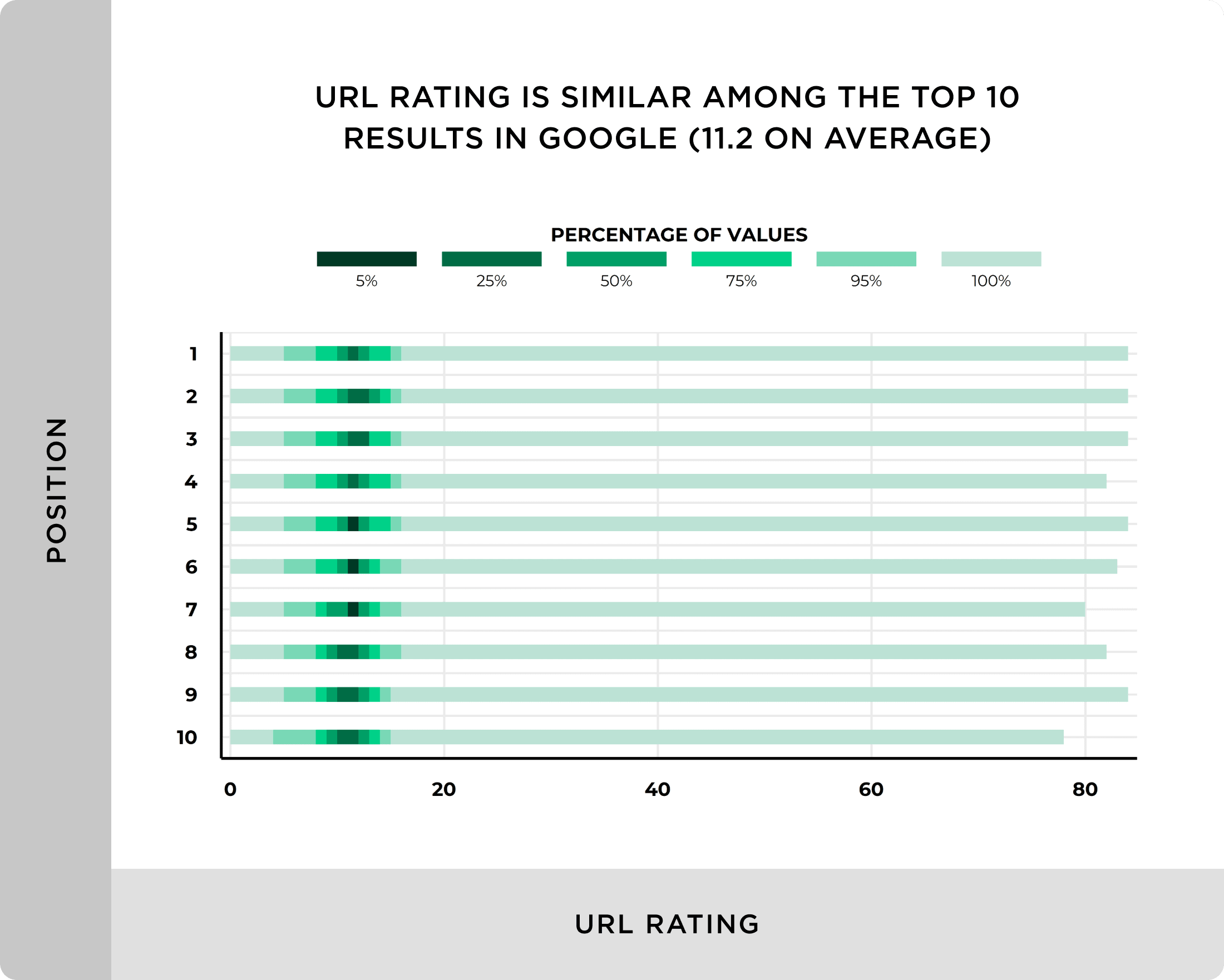
And across all of the pages in our data set, we found that the average URL Rating of a first page result in Google was 11.2.
Key Takeaway: The link authority of each individual page on your site appears to have a relatively small impact on rankings compared to your site’s overall domain authority.
The Mean Word Count of a Google First Page Result Is 1,447 Words
Does long-form content outperform short, 200-word blog posts?
Other industry studies, like this one, have found that longer content tends to accumulate more backlinks compared to short blog posts.
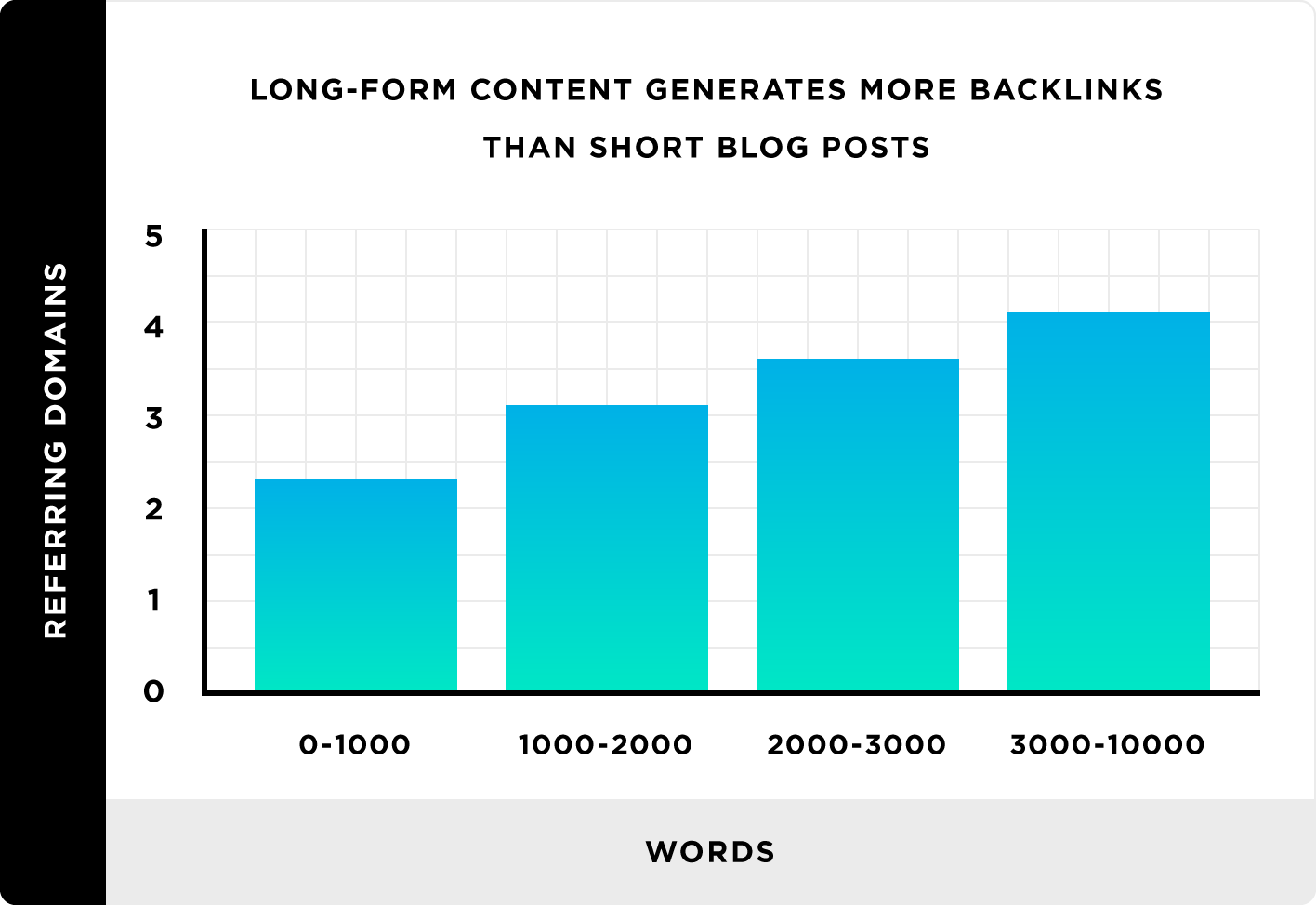
Indeed, we discovered that content that’s ranking in Google tends to be on the long side.
Overall, the average word count of a Google top 10 result is 1,447 words.
However, despite the fact that long-form content tends to be best for link building, we found no direct relationship between word count and rankings.
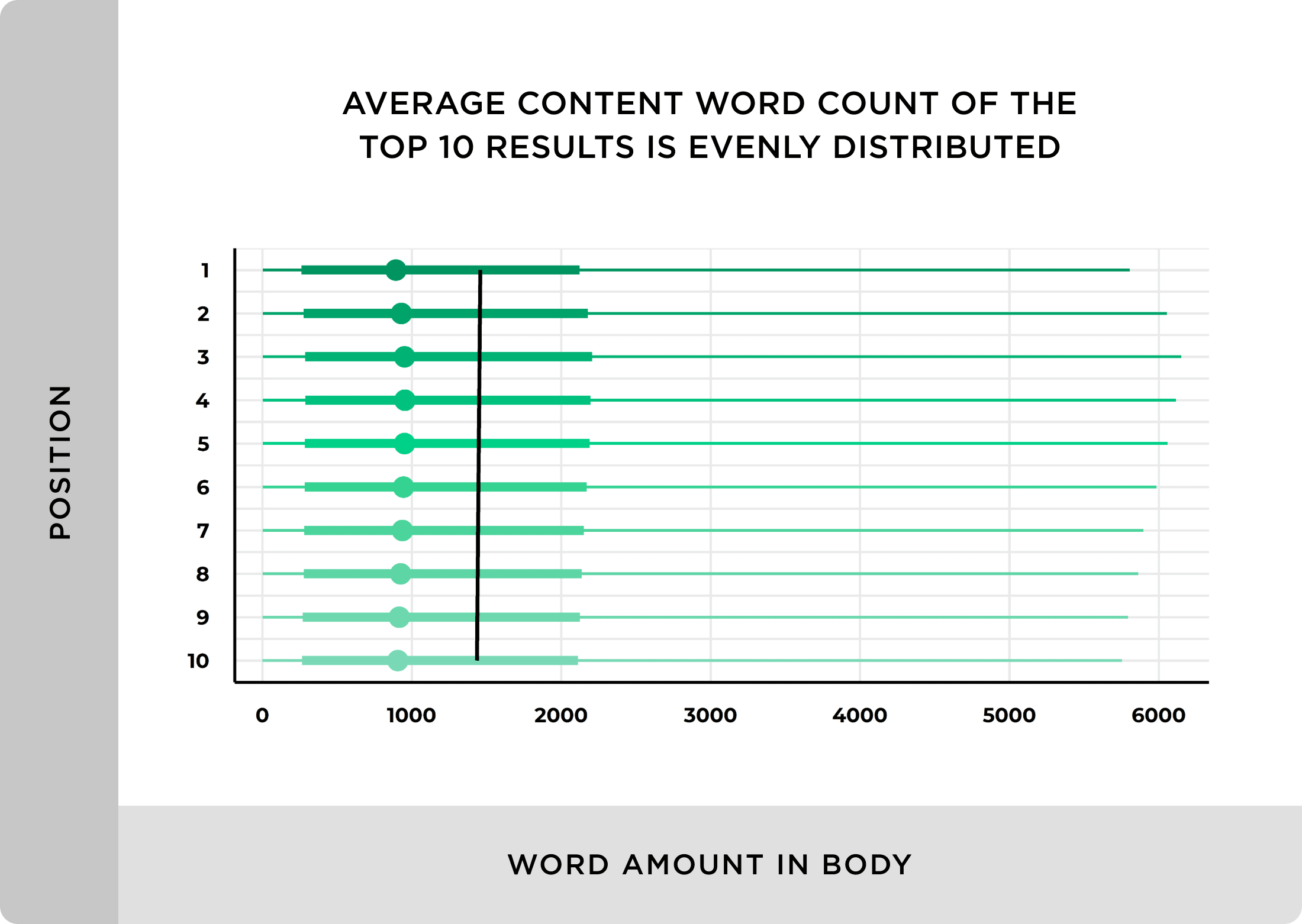
This may be due to the fact that, like with keyword-optimized title tags, long-form content can help you crack the first page. But it won’t help you once you get there.
This being a correlation study, it’s impossible for us to pinpoint why long-form content tends to appear on Google’s first page.
Key Takeaway: Pages with higher word count appear to have the same chance of ranking highly on the first page compared to pages with a lower word count. The mean word count of a Google first page result is 1,447 words.
Page HTML Size Has No Relationship With Rankings
Does having a lean page (in terms of total bytes) affect your Google rankings?
According to this analysis, no.
We found no correlation between page size and rankings.
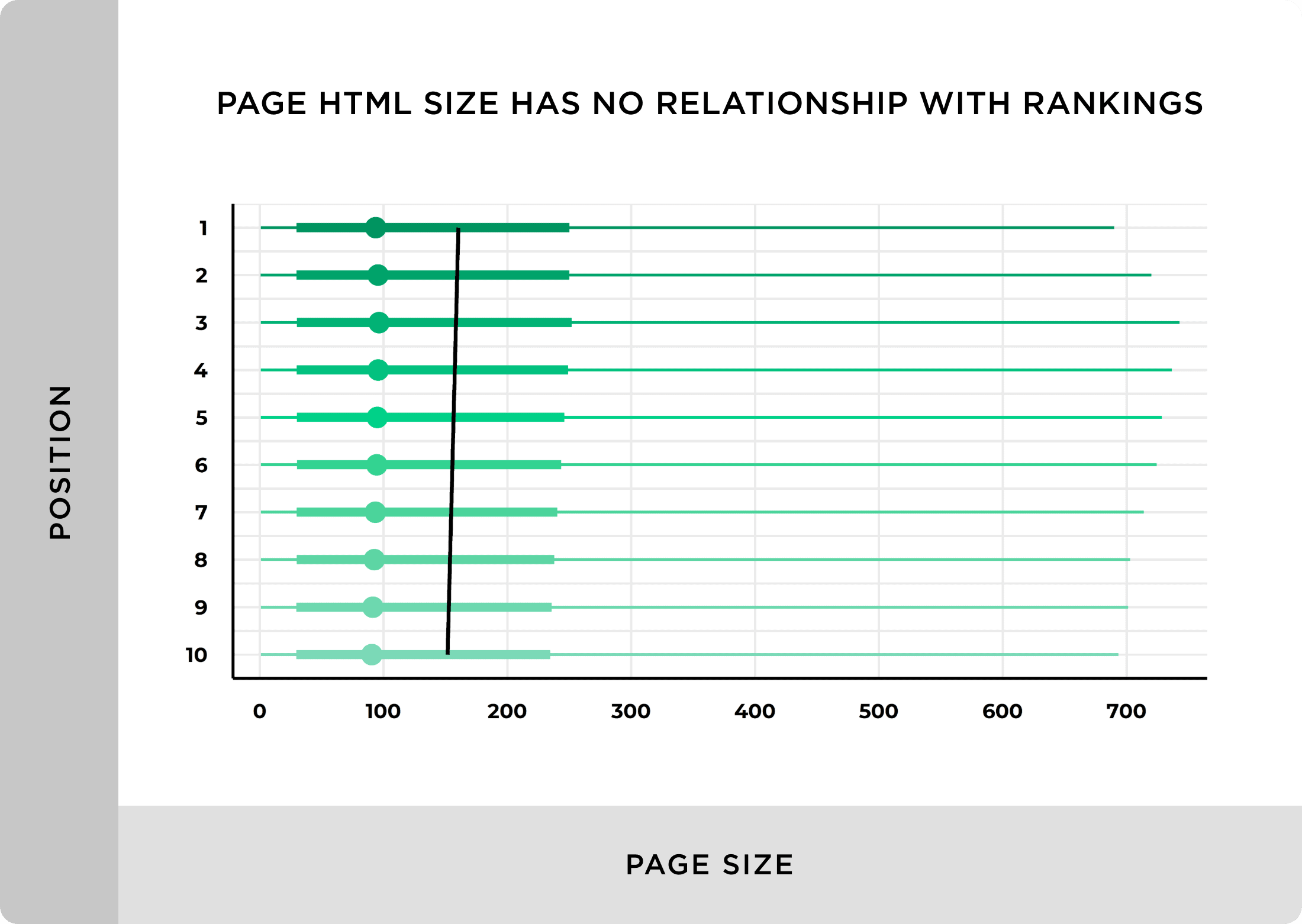
People in the SEO community have speculated that larger pages with bloated HTML are at a disadvantage.
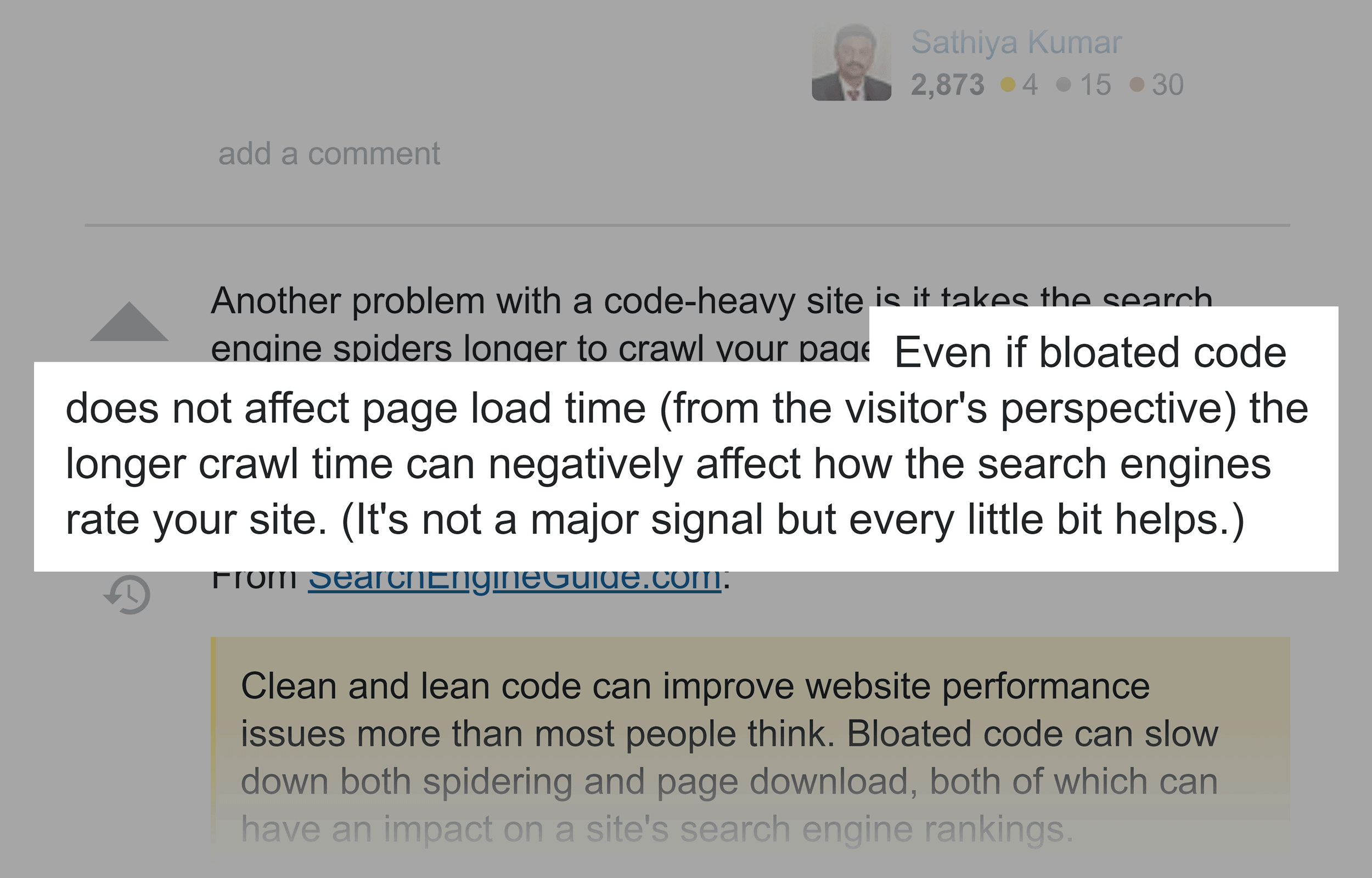
However, according to the pages in our analysis, page size can’t be tied to rankings.
Key Takeaway: Page size doesn’t appear to have an impact on Google rankings.
Short URLs Tend to Rank Slightly Better than Long URLs
Google recommends using “Simple URLs” and specifically advises against “extremely long” URLs.
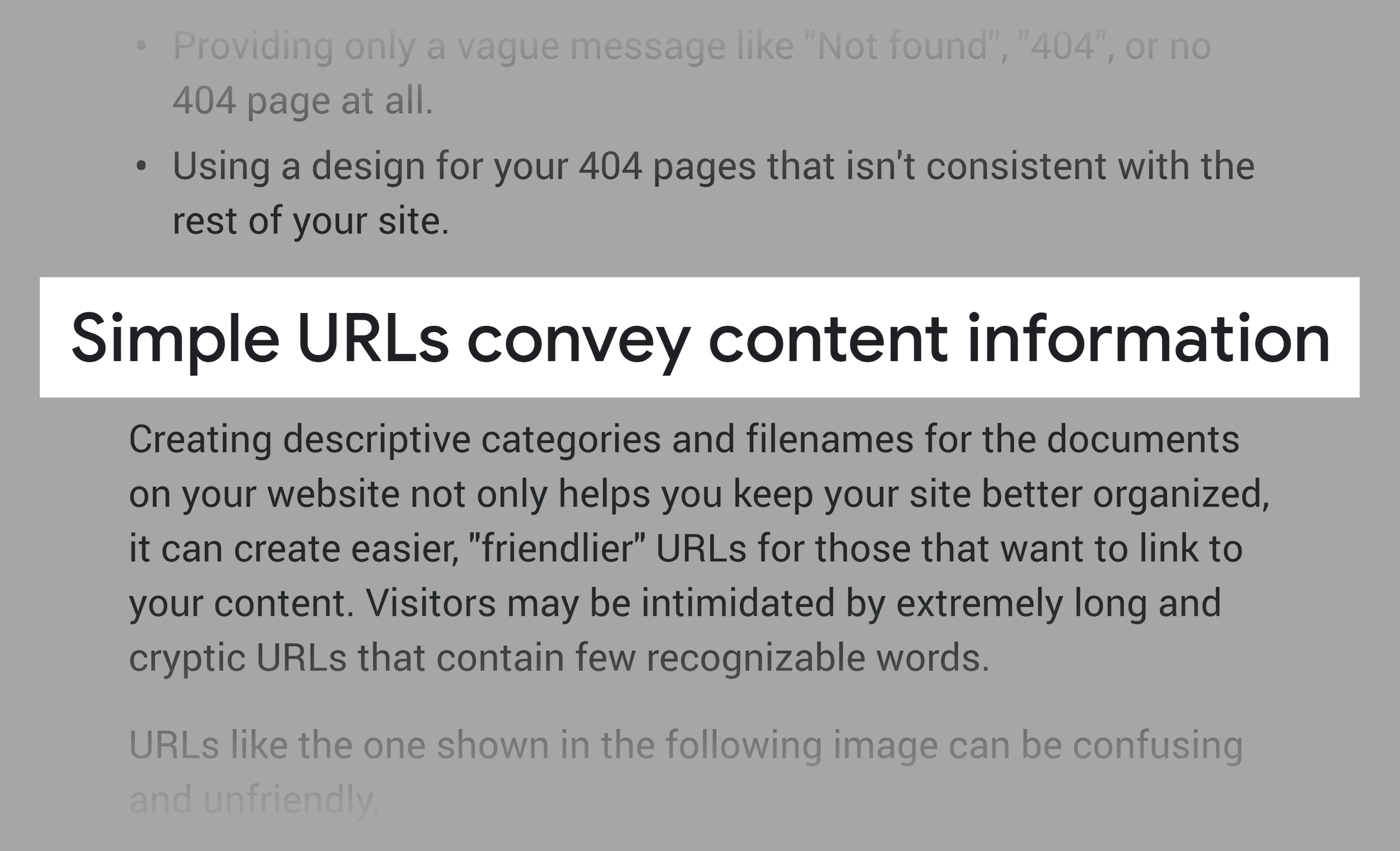
However, these recommendations appear to be more geared towards optimizing URLs for user experience than SEO.
This is why we set out to investigate the connection between URL length and rankings.
We did in fact find that short URLs rank above long URLs.
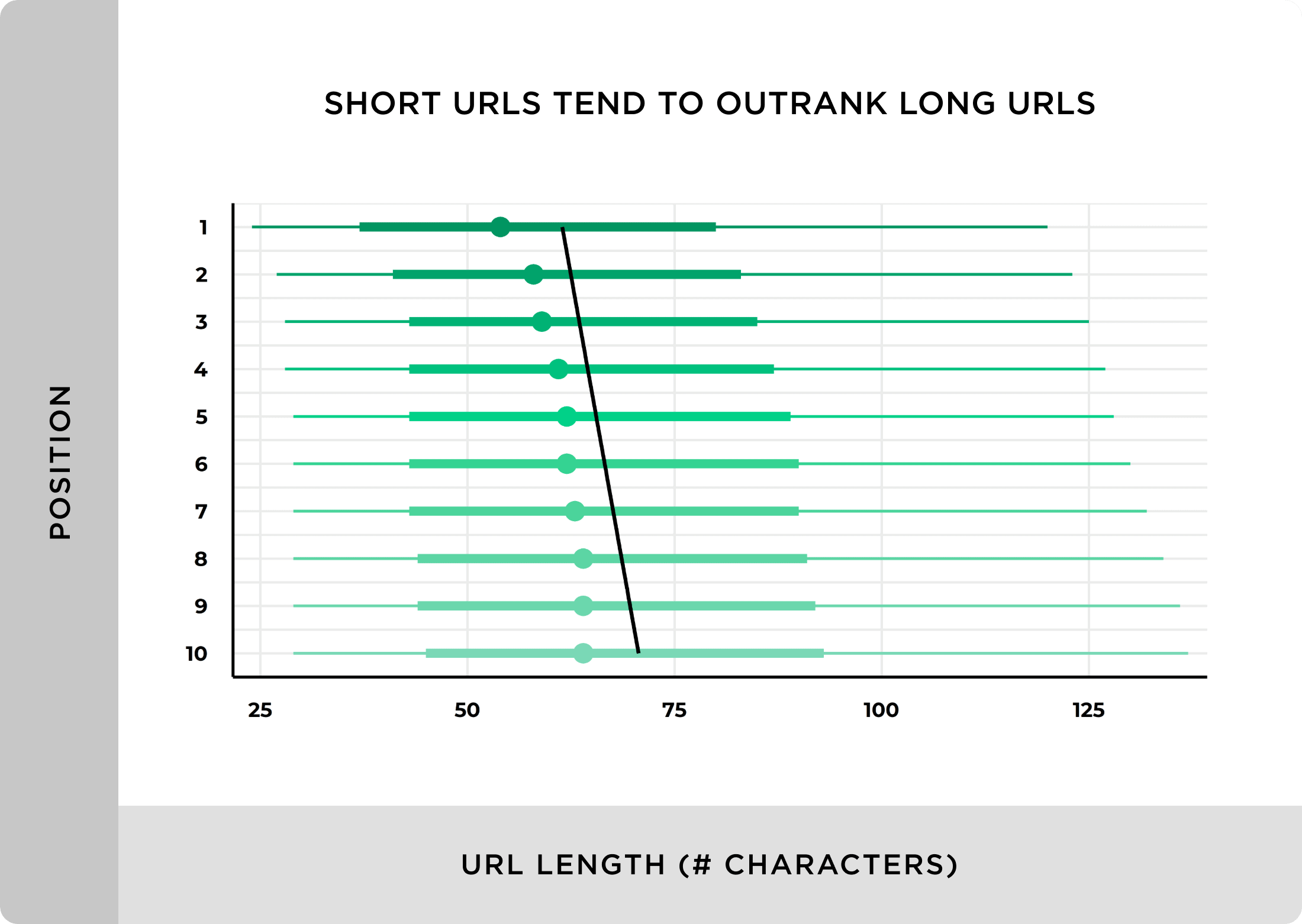
Specifically, URLs at position #1 are on average 9.2 characters shorter than URLs that rank in position #10.
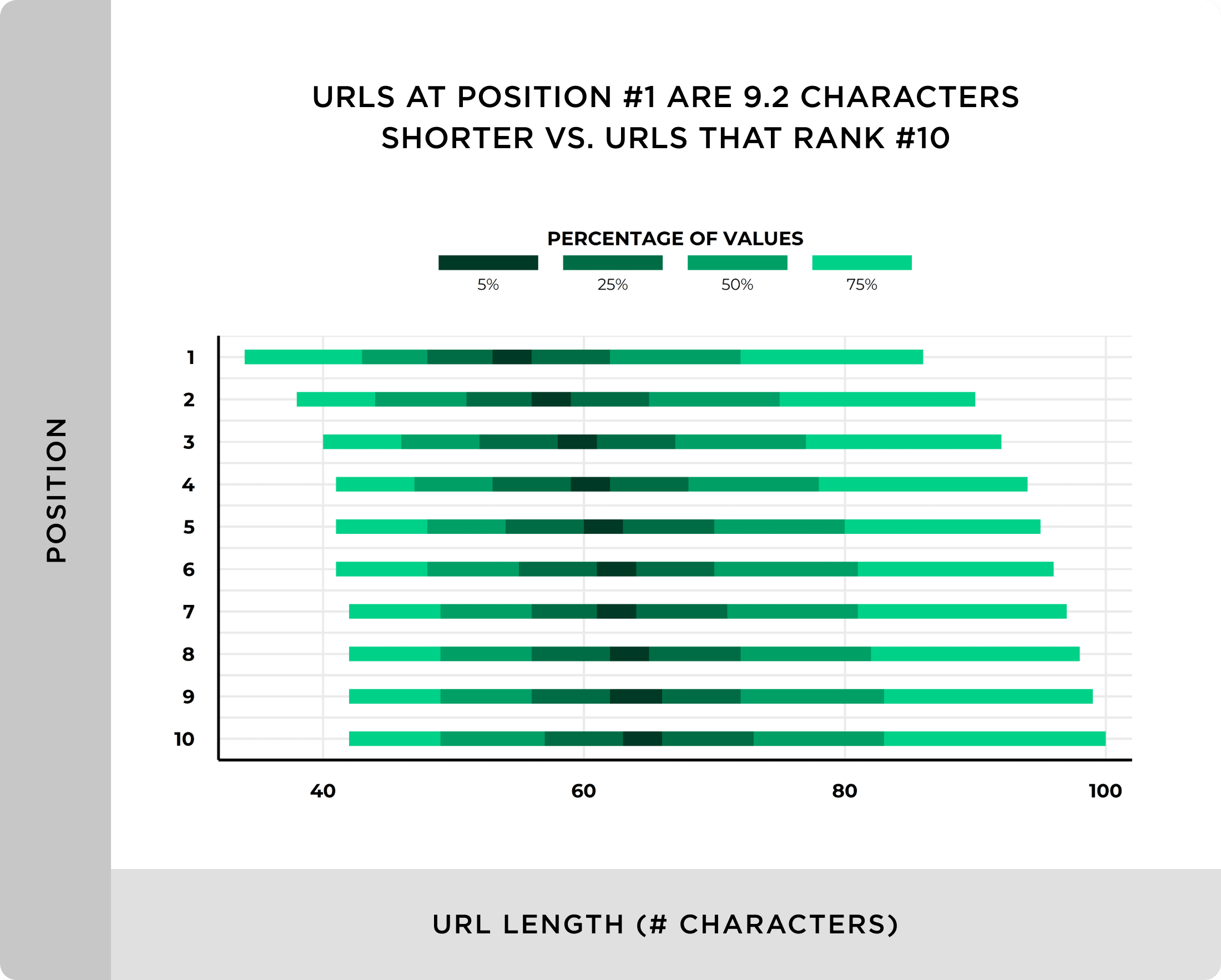
And the average URL length for a top 10 result in Google is 66 characters.
However, as a whole, most URLs on the first page of Google are approximately the same length (40 to 100 characters).
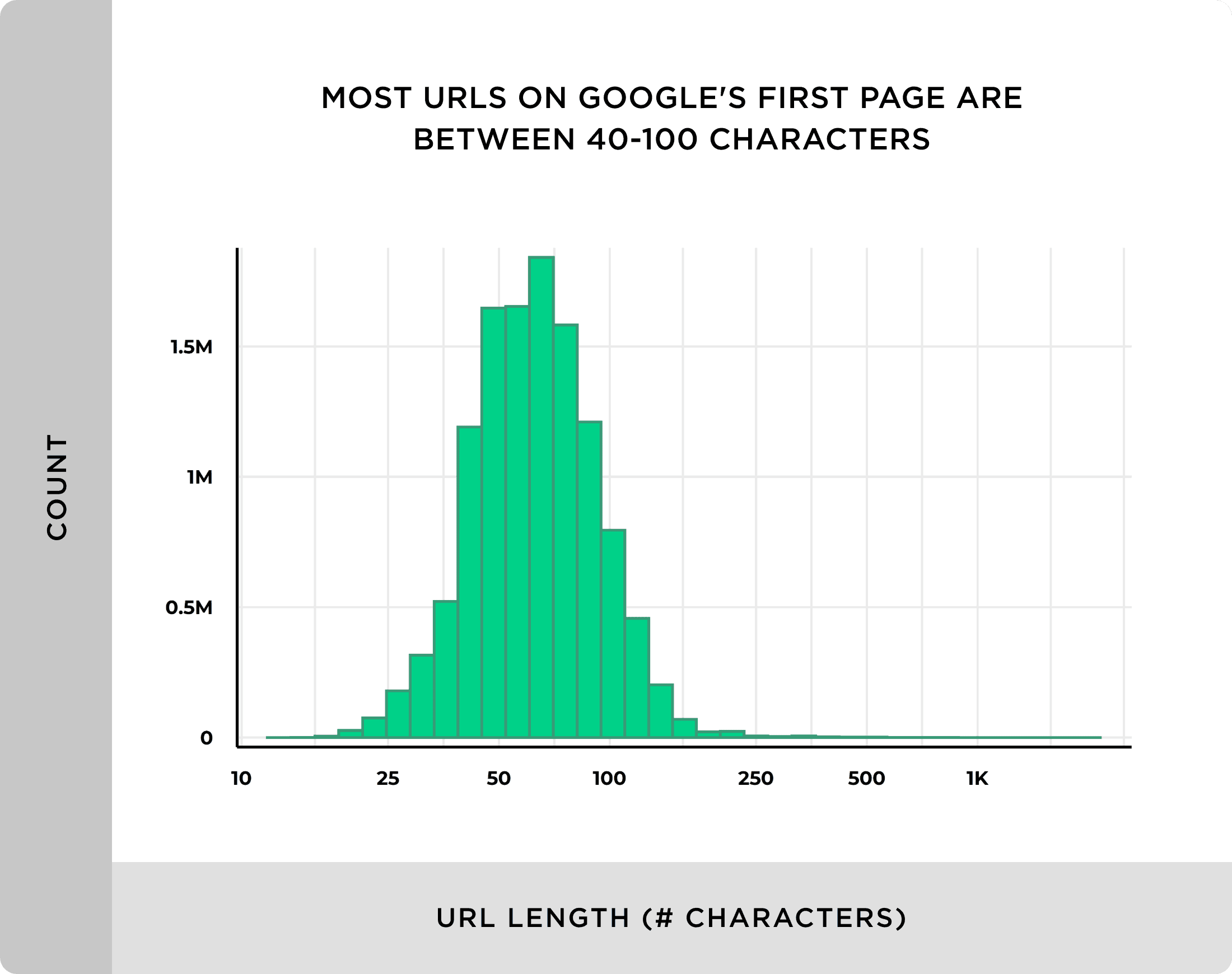
Short URLs may improve SEO for a few different reasons.
Firstly, short URLs may lead to a higher organic CTR. In fact, our large-scale organic CTR study found that short URLs have a higher CTR vs. long URLs.
Second, short URLs may help Google understand what your page is all about.
For example, a short URL like backlinko.com/my-post is easier for Google to understand than backlinko.com/1/12/2023/blog/category/this-is-the-title-of-my-blog-post pageid=891/.
Finally, a long URL tends to point to a page that’s several clicks from the homepage. That usually means that there’s less authority flowing to that page. Less authority means lower rankings.
For example, this URL to a vase product page represents a page that’s far removed from the site’s authoritative homepage:
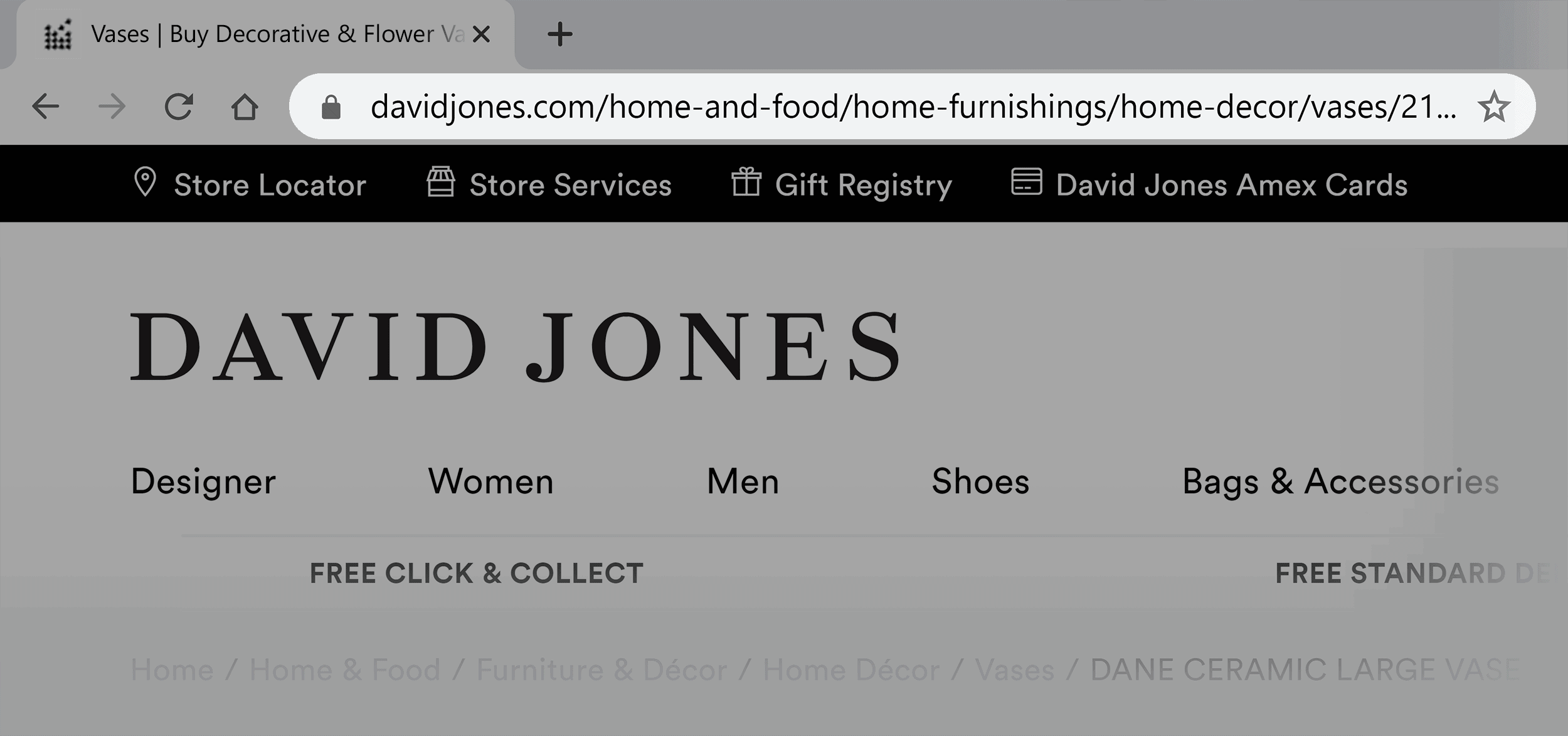
Key Takeaway: Shorter URLs have a correlation with higher rankings. The average URL on Google’s first page is 66 characters long.
There is No Correlation Between Schema Markup and Rankings
There’s been a lot of buzz about Schema in the SEO community over the last few years.
Google themselves have been vague about Schema’s impact on rankings.
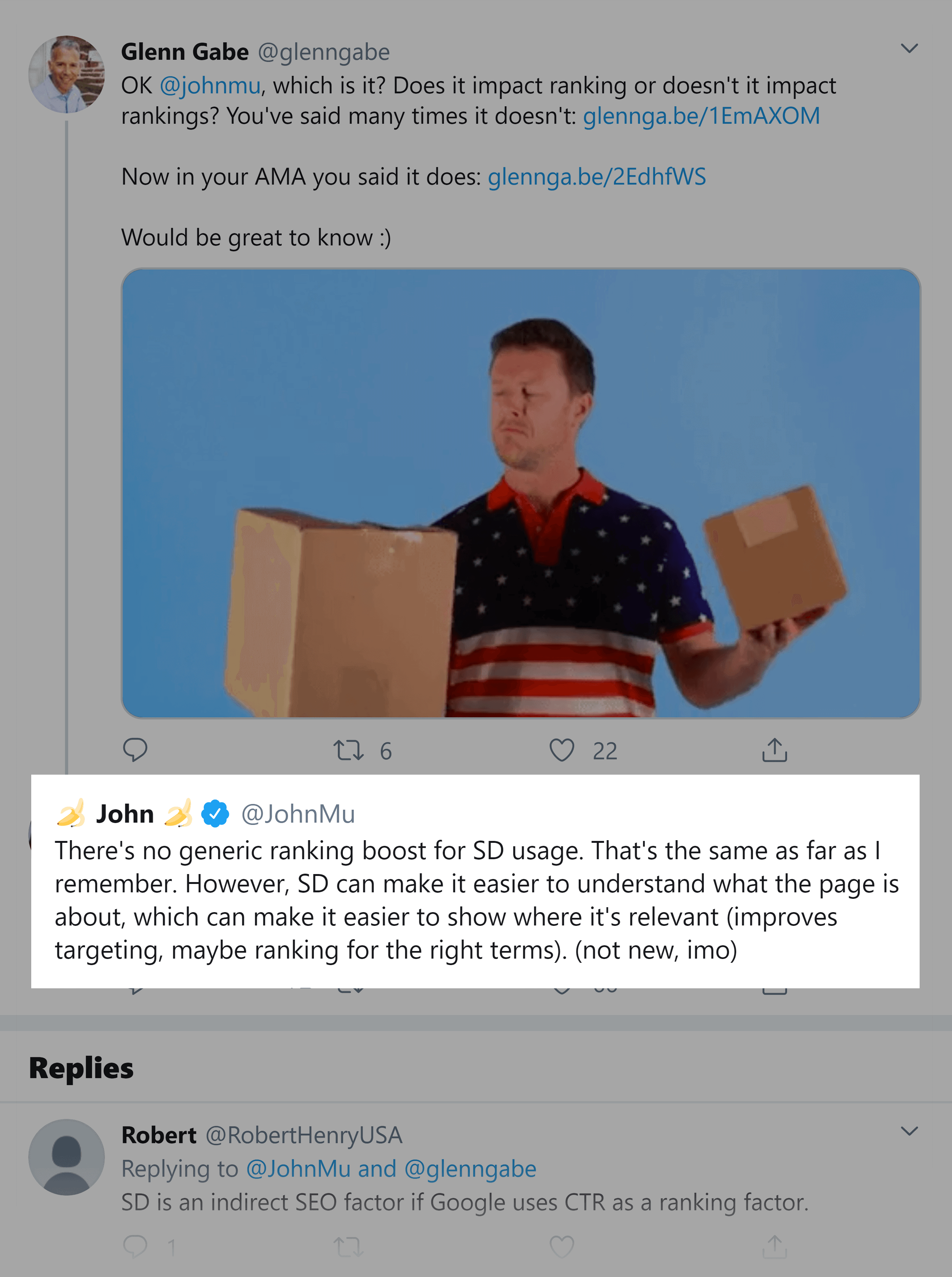
Many believe that Schema markup gives search engines a better understanding of what your content means. This deeper understanding will encourage them to show your site to more people.
For example, you can use structured data to let Google know that when you use the word “Toy Story”, you’re referring to the original movie title…not the franchise in general:
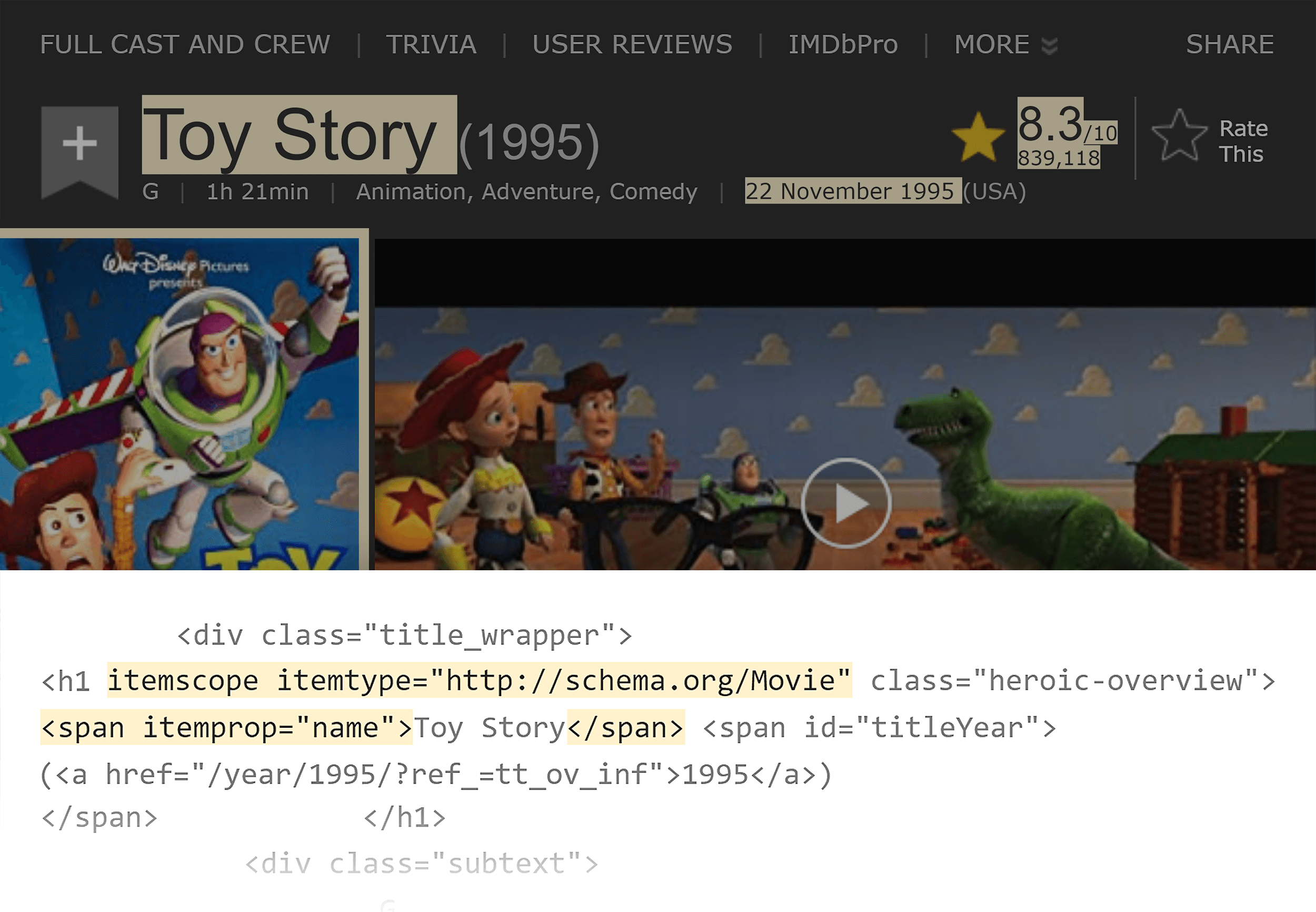
Many sites use Schema to get rich snippets in the SERPs.
However, despite these potential benefits, we found that very few sites have implemented Schema.
We discovered that only 72.6% of pages on the first page of Google use Schema.
And, according to our analysis, the presence of structured data had no relationship with Google rankings.
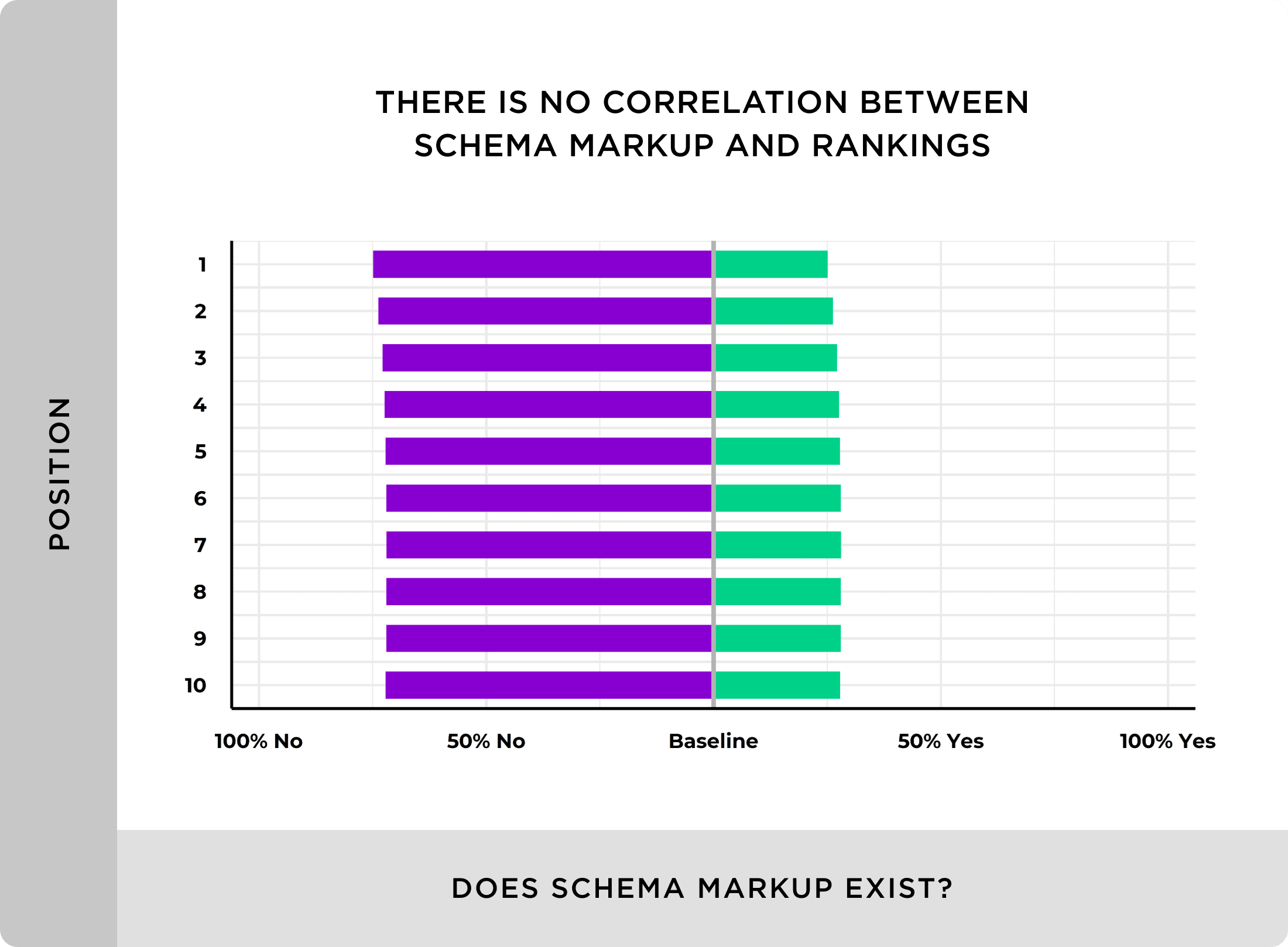
Key Takeaway: Using Schema markup may have its place. But it doesn’t directly correlate with higher Google rankings.
Websites With Above-Average “Time On Site” Tend to Rank Higher In Google
Many people in the SEO world have speculated that Google uses “user experience signals” (like bounce rate, time on site, organic click-through-rate, and pogosticking) as ranking factors.
To test this theory, we ran a subset of domains from our data set through Alexa to determine site-wide time on site. We then looked to see if there was any correlation between time on site and first page Google rankings.
We did in fact find a strong relationship between time on site and rankings.
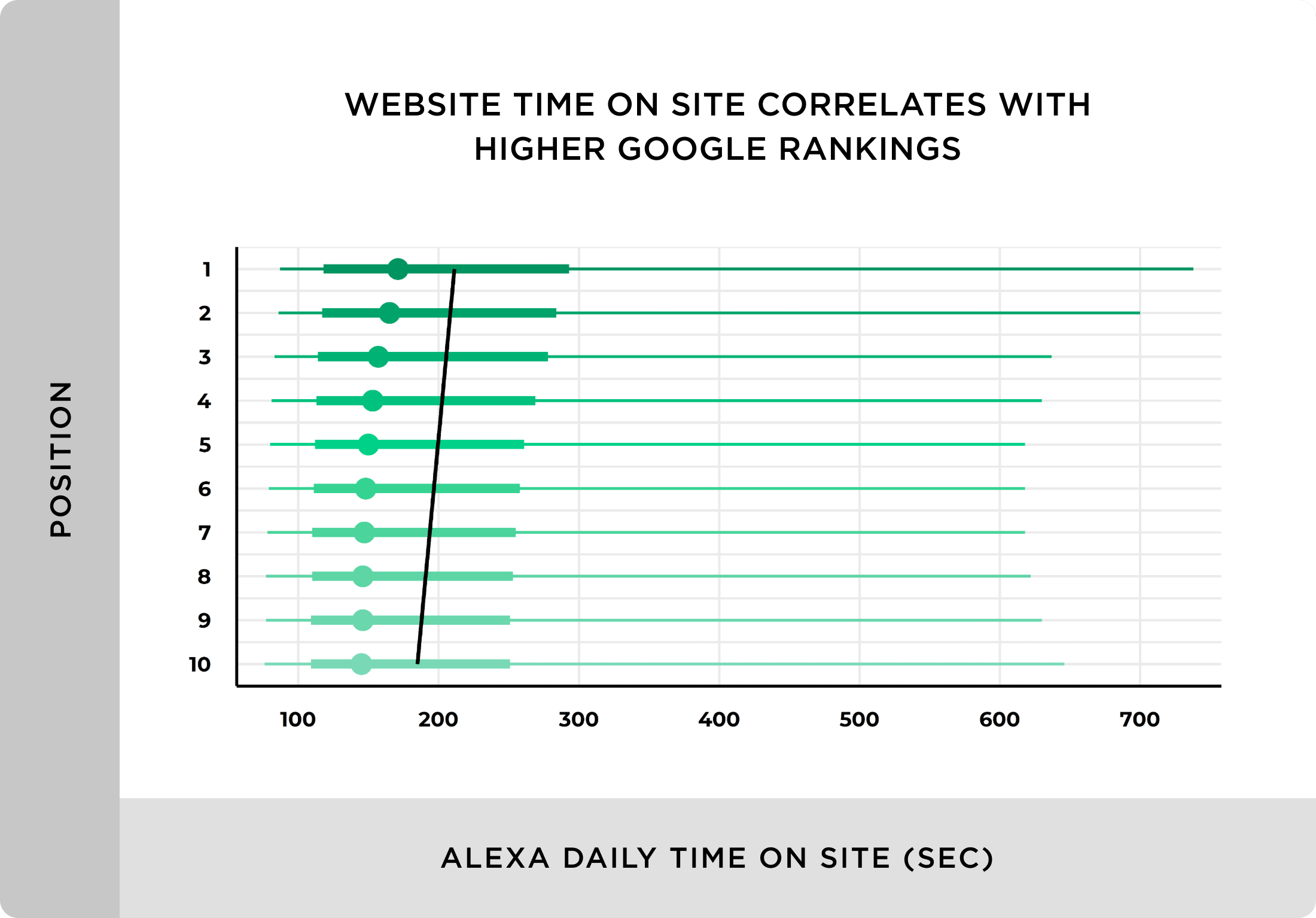
Specifically, we discovered that time on site is strongly correlated with higher rankings.
In general, the average time on site for a Google first page result is 2.5 minutes.
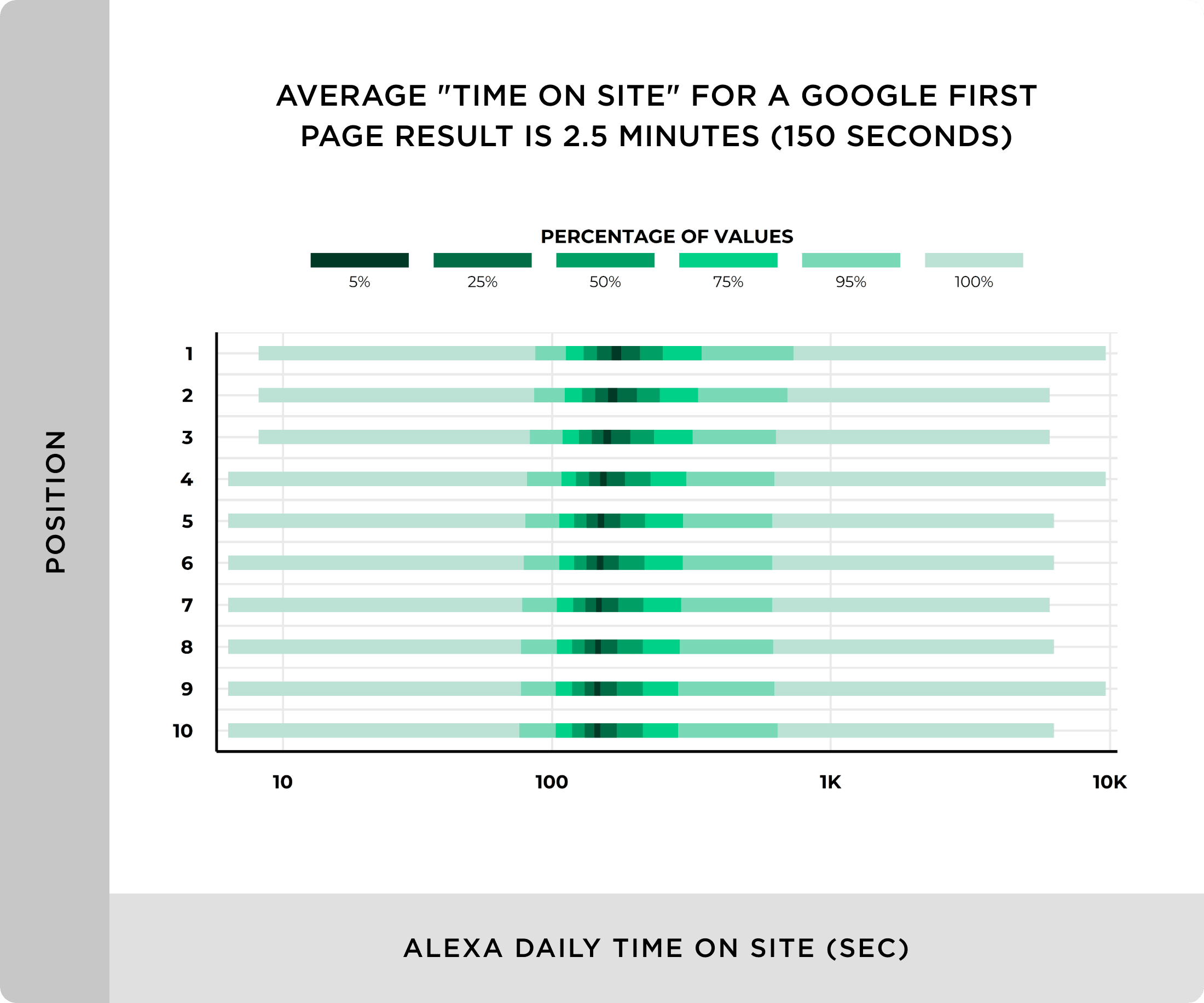
Please keep in mind that we aren’t suggesting that time on site has a direct relationship with higher rankings.
Of course, Google may use something like time on site or bounce rate as a ranking signal (although they have previously denied it). Or it may be the fact that high-quality content keeps people more engaged. Therefore a high time on site is a byproduct of high-quality content, which Google does measure.
As this is a correlation study, it’s impossible to determine from our data alone.
Key Takeaway: The average time on site for a Google first page result is 2.5 minutes.
We also found a strong correlation between time on site and Google rankings. However, it’s not clear if this is correlation or causation.
Conclusion
I’d like to again thank Ahrefs for providing a lot of the raw data that made this study possible.
Also, if you’d like to learn more about how we collected and analyzed our data, here is a link to our study methods. We also uploaded the raw data used in this analysis to GitHub.